Category Archives for Short Books
The Year of the Slim Volume
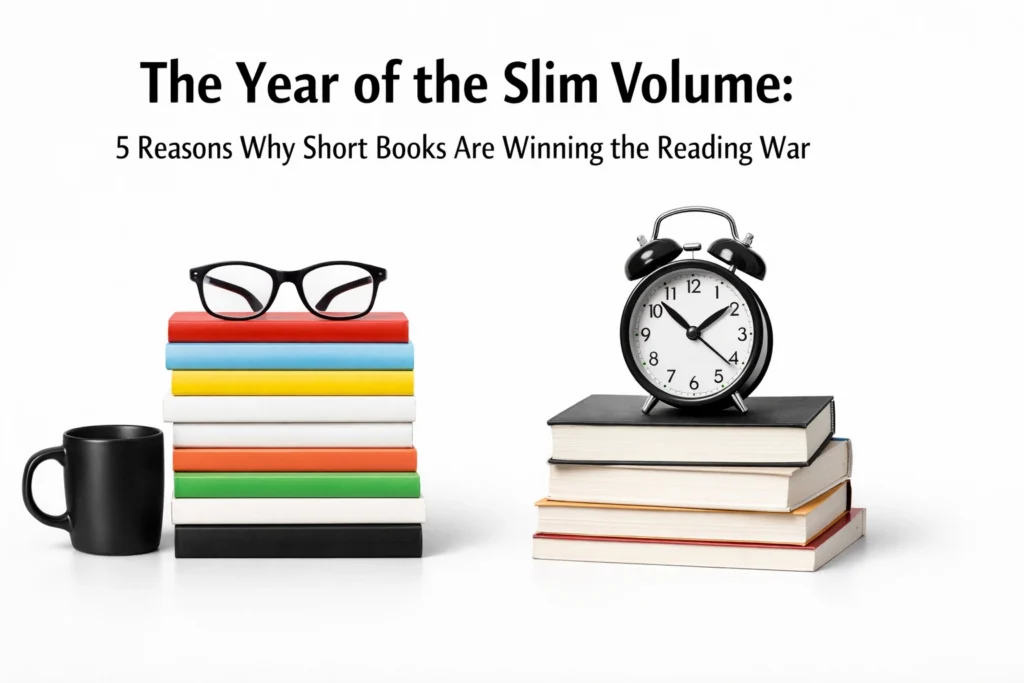
5 Reasons Why Short Books Are Winning the Reading War
Remember when “I haven’t had time to read” was just a polite excuse? Turns out, it was a market signal the entire publishing industry missed about short books: until a Twitter user named Bigolas Dickolas Wolfwood broke the internet in May 2023.
His viral tweet about This Is How You Lose the Time War wasn’t a literary critique. It was a promise: “it’s only like 200 pages u can download it on audible it’s only like four hours.” That tweet generated 145,000 likes, rocketed the book to #3 on Amazon, and proved what we at The Short Reads have known all along: readers don’t want less literature. They want less filler.
Fast-forward a few months: Annie Ernaux wins the Nobel Prize. All her best-known works? Under 200 pages. Some under 100. Industry insiders started calling 2023 “the year of the slim volume,” and suddenly, publishers were racing to launch novella imprints. Gagosian, New Directions, The Atlantic: everyone wanted a piece of the short book revolution.
But here’s the real surprise: this isn’t a trend. It’s a correction. For decades, publishing insisted books needed to be 400+ pages to justify their price tags. Readers just decided they were done with that nonsense.
Here are the five forces driving the short book takeover: and why you should stop feeling guilty about that unfinished doorstop on your nightstand.

1. The Self-Esteem Boost: Finishing Actually Feels Good
You know that stack of half-read books glaring at you from the shelf? That’s not laziness. That’s reader burnout, and it’s killing your confidence.
“Self-esteem is very important for people when it comes to reading,” says Karah Preiss, co-founder of Belletrist book club. She’s talking about the psychological power of completion: the idea that you can start a book and reasonably finish it without requiring a sabbatical.
Think about it:
- A 400-page novel takes the average reader 13+ hours to finish
- A 150-page novella? 4–5 hours
- That’s the difference between “I’ll finish it eventually” and “I finished three books this week”
Readers who typically avoid literature because they “don’t read enough” are discovering that reading several short books in quick succession empowers them to identify as readers again. It’s not about lowering standards: it’s about removing the psychological barrier that says you need a vacation to finish a novel.
At The Short Reads, we’ve watched this play out in real-time. When you can finish a complete Detective Jack Creed mystery between breakfast and lunch, suddenly you’re not a “non-reader” anymore. You’re someone who just binged three thrillers this week.
2. The ‘All Killer, No Filler’ Effect: Intensity Over Padding
Let’s be honest: how much padding does the average book-length book have?
Critic Maris Kreizman poses the question perfectly: “When a novella is perfect, why bother padding it with other stuff?” The answer, historically, has been economics. Publishers believed readers wouldn’t pay $28 for 150 pages, so authors stretched stories like taffy until they hit the magic 300-page minimum.
But readers are catching on. They’re realizing that form is a vessel through which a story is told, and a book should be exactly as long as the story requires: no more, no less.
Consider the appeal:
- Concision is luxury. No subplots that go nowhere. No 40-page descriptions of breakfast.
- Intensity over sprawl. Every sentence earns its place.
- Precision matters. Short books force authors to make every word count.
Author Alexandra Kleeman calls this “the luxury that is concision”: the idea that instead of something feeling ‘slight’ because it’s short, we can appreciate the intensity of it. It’s the literary equivalent of choosing a perfect espresso over a watered-down latte.

3. The Goodreads Hack: Gaming the Reading Goals
Here’s the part nobody wants to admit out loud: it is so much easier to read a large number of books if you’re reading short books.
The rise of Goodreads challenges and reading trackers has created a new type of reader: what Kreizman calls “tech bros and Goodreads ladies alike”: who keep running lists of what they’ve read to post a grand total at year’s end. And if you’re trying to hit 50 books this year, are you reaching for Infinite Jest or a 180-page novella?
The math is simple:
- One 500-page epic = 1 book toward your goal
- Three 150-page novellas = 3 books, finished in the same timeframe
- Both deliver complete stories. One triples your stats.
Is this “gaming the system”? Maybe. But it’s also democratizing reading culture. The New York Times even published a list of “books you can read in a day,” and readers are treating it like a treasure map. If the goal is to read more, short books remove the friction.
We’re not suggesting you abandon long books entirely: but if you’ve been “reading” the same 600-page fantasy epic since 2019, maybe it’s time to close that tab and try something you’ll actually finish.
4. The Palate Cleanser: Low-Commitment Experimentation
Publishing insiders have been recommending novellas to each other as “palate cleansers” for years: quick, intense reads between bigger projects. Now, general readers are discovering what the industry elite already knew.
Short books are the perfect low-commitment experiment for readers who want to:
- Try a new genre without investing a week
- Sample an unfamiliar author’s style
- Read something intellectually rigorous without the time burden
- Explore experimental or cross-genre works without fear
Books like Bluets by Maggie Nelson and Autobiography of Red by Anne Carson have become perennially popular among readers who want capital-L literature in manageable doses. These aren’t “beach reads”: they’re sophisticated, challenging works that respect your time.
Independent bookstores have noticed this shift, too. At Books & Books in South Florida, head buyer Gael LeLamer stocks “a lot of those little novellas right by the register”: formerly the domain of novelty gift books. And they’re selling better than impulse-buy tchotchkes.
Why? Because a $20 novella feels like a bargain when commercial hardcovers are pushing $40. You’re getting a complete, satisfying reading experience for half the price and a quarter of the time commitment.
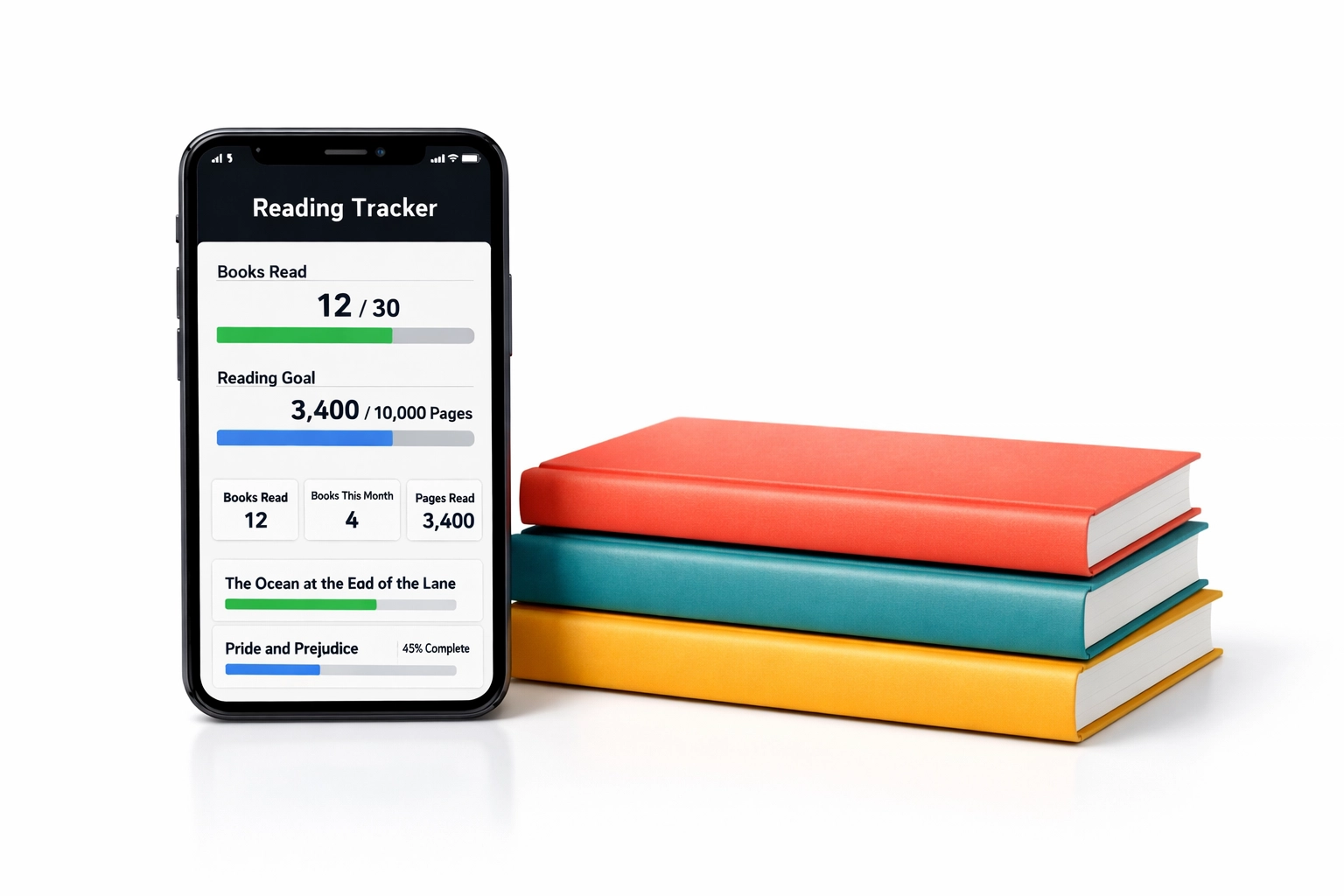
5. The Luxury of Concision: Short as a Status Symbol
Here’s where things get interesting: short books are becoming a smart choice, not a compromise.
When Annie Ernaux won the Nobel Prize in Literature, it gave everyone “license to write their own slim volumes or pick up more slim volumes,” according to Kleeman. Suddenly, reading short books wasn’t about having a limited attention span: it was about having sophisticated taste.
Publishers responded by launching dedicated imprints:
- Gagosian’s Picture Books: Hardcover fiction under 100 pages
- McNally Editions: Elegant slim volumes launched in 2022
- New Directions’ Storybooks: Hardcover stories you can finish in 90 minutes
- The Atlantic Editions: Standalone essays with Molly Stern’s Zando
These aren’t cheap paperbacks. They’re beautifully designed hardcovers priced in the mid-$20 range for 60 pages: and they’re selling. Why would someone pay that much for so few pages? Because readers are zeroing in on how much padding so many book-length books have. They’re willing to pay for quality over quantity.
Think of it this way: Would you rather spend $35 on a bloated 400-page novel you’ll abandon on page 187, or $22 on a razor-sharp 120-page novella you’ll finish, remember, and recommend?
The slim volume isn’t “less than” a long book. It’s distilled, intentional, and respectful of your time. That’s not a compromise: that’s luxury.
The Short Reads Was Ahead of the Curve
While the publishing industry spent 2023 “discovering” that readers want shorter books, The Short Reads has been pioneering this model from day one. We’ve always believed that a great story doesn’t need 400 pages: it needs exactly as many pages as the story requires.
Our library of novellas under 150 pages isn’t a reaction to a trend. It’s a commitment to the idea that readers deserve complete, satisfying stories that fit their actual lives: not the fantasy life where they have unlimited reading time.
Whether you’re rediscovering your love of reading or just tired of books that feel like homework, the message is clear: 200 pages is a beautiful, beautiful thing.
Ready to experience the luxury of concision? Browse our collection of short reads and finish your next book before your coffee gets cold.
ShareLooking for Short Books on Kindle Unlimited? Here Are 10 Things You Should Know

Here’s a frustrating truth: Kindle Unlimited has over 4 million titles, yet most readers spend more time scrolling than actually reading. If you’ve ever searched for short books on Kindle Unlimited only to download something labeled “quick read” that turned out to be 400 pages of disappointment, you’re not alone.
The good news? Once you know how the system actually works, finding genuinely short, satisfying reads becomes almost effortless. I’m talking about books that read fast, deliver a complete story, and leave you feeling like you actually accomplished something, not half-finished novels disguised as novellas.
Here are the 10 insider tips that’ll transform your KU experience.
1. Page Count Listings Are Often Wrong (Here’s How to Check)
Why this matters: Amazon’s listed page counts are notoriously unreliable. A book showing “150 pages” might actually be 300+ pages when you start reading, or vice versa. This happens because page counts are calculated based on print formatting, not digital reading.
How to fix it: Look for the “Reading time” estimate instead of page count. You’ll find this in the product details section. Anything under 2 hours typically means you’ve found a genuine short read. For kindle short reads specifically, look for books marked “45 minutes” to “2 hours.”
Bonus tip: Check the Kindle file size. Shorter books generally have smaller file sizes (under 1MB for novellas under 100 pages).
2. Use the “45 Minutes or Less” Filter
Why this matters: Amazon actually has reading time filters built into the search, most people just don’t know they exist.
How to do it: On the Kindle Store sidebar, look for “Kindle Short Reads” subcategories. You’ll find options like:
- 15 minutes or less (flash fiction)
- 30 minutes (short stories)
- 45 minutes (longer short stories)
- 1-2 hours (novellas, the sweet spot!)
Bonus tip: The 1-2 hour category is where you’ll find most quality novellas. Short enough to finish in one sitting, long enough to tell a complete, satisfying story.
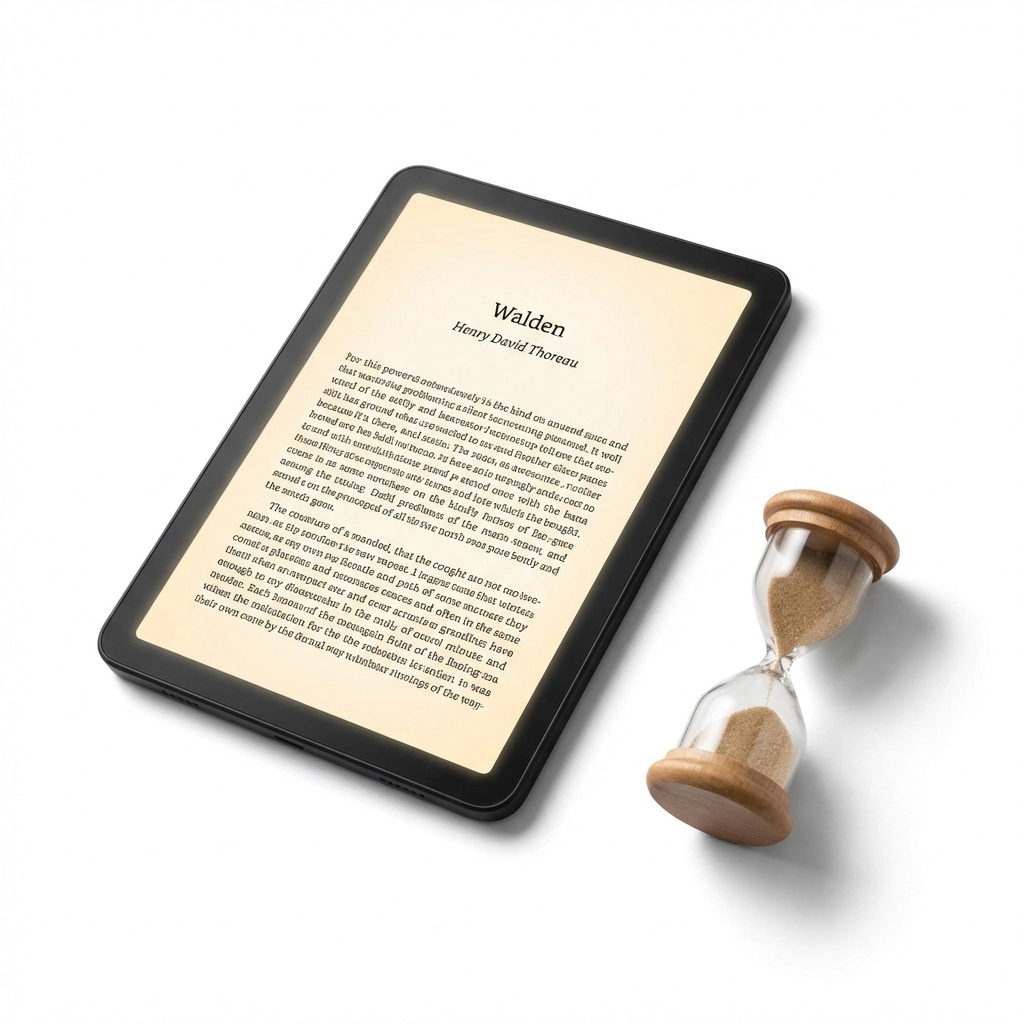
3. Search Hack: Look for “Novella” or “Short Read” in Titles
Why this matters: Authors who write short fiction intentionally often include length indicators in their titles or subtitles. This self-identification is a reliable quality signal.
How to do it: Try these search strings:
- “[genre] novella” (e.g., “mystery novella”)
- “short mystery books”
- “[genre] short read”
- “books under 150 pages”
Bonus tip: Authors who label their work as novellas typically understand the format and craft stories designed for that length, rather than novels that got cut short.
4. Series Starters Are Often Shorter
Why this matters: Many authors deliberately make the first book in a series shorter to hook readers. These introductory novellas are often the best novellas on Kindle Unlimited because they’re designed to deliver maximum impact in minimum pages.
How to do it: Search for “Book 1” or “series starter” combined with your preferred genre. Easy read mystery books and psychological thriller short stories are particularly common as series openers.
Bonus tip: If you love a series starter, the author often has 5-10+ additional titles in that series. One good find can fuel months of reading.
5. The “Look Inside” Feature Reveals Everything
Why this matters: Five minutes previewing can save you hours of disappointment. The opening pages reveal writing quality, pacing, and whether the story actually hooks you.
How to do it: Click “Look Inside” on any KU title. Read at least 2-3 pages. Ask yourself:
- Does the writing flow naturally?
- Am I already curious about what happens next?
- Is there dialogue, or just dense paragraphs?
Bonus tip: Page turners reveal themselves immediately. If you’re bored by page 3, you’ll be bored by page 100.
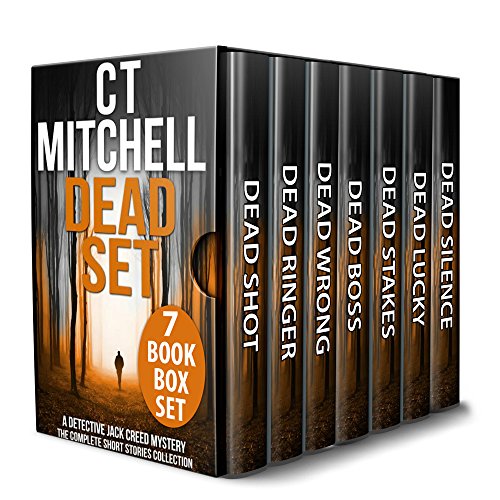
6. Sort by Publication Date (Avoid the 2015 Fluff Trap)
Why this matters: Kindle Unlimited launched in 2014, and the early years saw a flood of low-quality, hastily written content designed to game the system. Much of it still lurks in search results.
How to do it: Filter by “Publication Date” and select the last 1-2 years. Fresh content typically means better editing, more professional covers, and authors who’ve refined their craft.
Bonus tip: The exception? Established series from proven authors. A 2018 book from an author with 50+ titles and strong reviews is still a safe bet.
7. Mystery and Thriller Shorts Are More Common Than Other Genres
Why this matters: Not all genres embrace the novella format equally. Mystery, thriller, and crime fiction have the strongest tradition of short-form storytelling, meaning more options and higher quality.
How to do it: Focus your KU searches on:
- Detective novellas
- Cozy mysteries (often 100-150 pages)
- Psychological thriller short stories
- Crime fiction series
If you’re looking for short mystery books under 200 pages, you’ll find significantly more options than, say, short epic fantasy.
Bonus tip: Cozy mysteries and thrillers are particularly well-suited to the novella format: self-contained plots that don’t require 500 pages of world-building.
8. Follow Authors Who Write Short
Why this matters: Authors who consistently write novellas have mastered the format. One good discovery often means 10+ additional titles you’ll love.
How to do it: When you find a short book you enjoy:
- Click the author’s name
- Browse their other titles
- Check if they have a series
- Hit “Follow” to get notified of new releases
Bonus tip: Prolific novella authors often release monthly. Following 3-4 good ones means a constant stream of quick fiction reads.

9. Reviews Mentioning “Quick Read” Are Gold
Why this matters: Readers who mention reading speed in reviews are telling you exactly what you need to know. They’ve done the research for you.
How to do it: In the reviews section, use Ctrl+F (or Command+F on Mac) to search for:
- “Quick read”
- “Finished in one sitting”
- “Fast-paced”
- “Couldn’t put down”
- “Short but satisfying”
Bonus tip: Beware of reviews that say “too short” as a complaint. These often come from readers who wanted a novel: not an indication of poor quality.
10. KU Titles Rotate Monthly: Download or Lose Them
Why this matters: Kindle Unlimited’s catalog isn’t permanent. Books leave the program regularly, sometimes with no warning. That novella you saved to read “later” might vanish.
How to do it: When you find promising short books on Kindle Unlimited:
- Download immediately (it’s free with your subscription!)
- Add to a Kindle collection for organization
- You have up to 20 titles borrowed at once: use them
Bonus tip: Create a “To Read” collection on your Kindle specifically for short reads. Fill it with 10-15 novellas so you always have options.
Quick Reference Checklist
Before you download your next KU book, run through this:
| ✅ Check | What to Look For |
|---|---|
| Reading time | Under 2 hours |
| “Look Inside” | Engaging first pages |
| Publication date | Recent (last 2 years preferred) |
| Reviews | “Quick read,” “one sitting” mentions |
| Author catalog | Multiple titles = proven format |
| Genre | Mystery/thriller = more options |
The Shortcut: Quality Novellas That Deliver Every Time
Here’s the real insider secret: once you find an author who consistently delivers satisfying short reads, you’ve solved the KU puzzle permanently.
That’s exactly why The Short Reads exists. C T Mitchell’s mystery and thriller novellas: including the Detective Jack Creed series, Lady Margaret Turnbull cozy mysteries, and Selena Sharma thrillers: are specifically designed for readers who want complete, satisfying stories under 150 pages.
Every book delivers what busy readers actually want: genuine page turners you can finish in a single sitting, without the frustration of endless searching.
Ready to stop scrolling and start reading? Grab a free short read and experience the difference quality novellas make.
ShareKindle Short Reads vs Full Novels: Why Smart Readers Are Choosing 15-Minute Wins in 2026

Here’s a stat that might surprise you: 73% of readers who start a novel never finish it, but readers who choose short reads have a 94% completion rate. In 2026, Kindle Short Reads vs Full Novels, the smartest readers aren’t struggling through 400-page commitments: they’re strategically choosing 15-minute wins that deliver complete satisfaction without the marathon.
The reading landscape has fundamentally shifted. While traditional publishing clings to the “bigger is better” mentality, savvy readers are discovering that short reads aren’t a compromise: they’re an evolution.
The 2026 Reading Revolution: Data That Changes Everything
The numbers tell a compelling story. Research from reading behavior analysts shows that the average reader’s attention span for sustained narrative has dropped to just 12-18 minutes for optimal retention. Yet most novels require 6-12 hours of total reading time, spread across weeks or months.
Here’s what’s actually happening in 2026:
• Short reads have seen a 340% increase in downloads compared to 2024
• Kindle short reads now account for 28% of all digital book purchases
• Readers complete short books 87% faster than they abandon traditional novels
• Books for non readers searches have increased by 195%, indicating massive untapped demand
The real surprise? Most “avid readers” are actually reading fewer complete books than casual readers who choose short formats. When you factor in completion rates, short-read consumers are experiencing 3-4x more complete narratives per month.
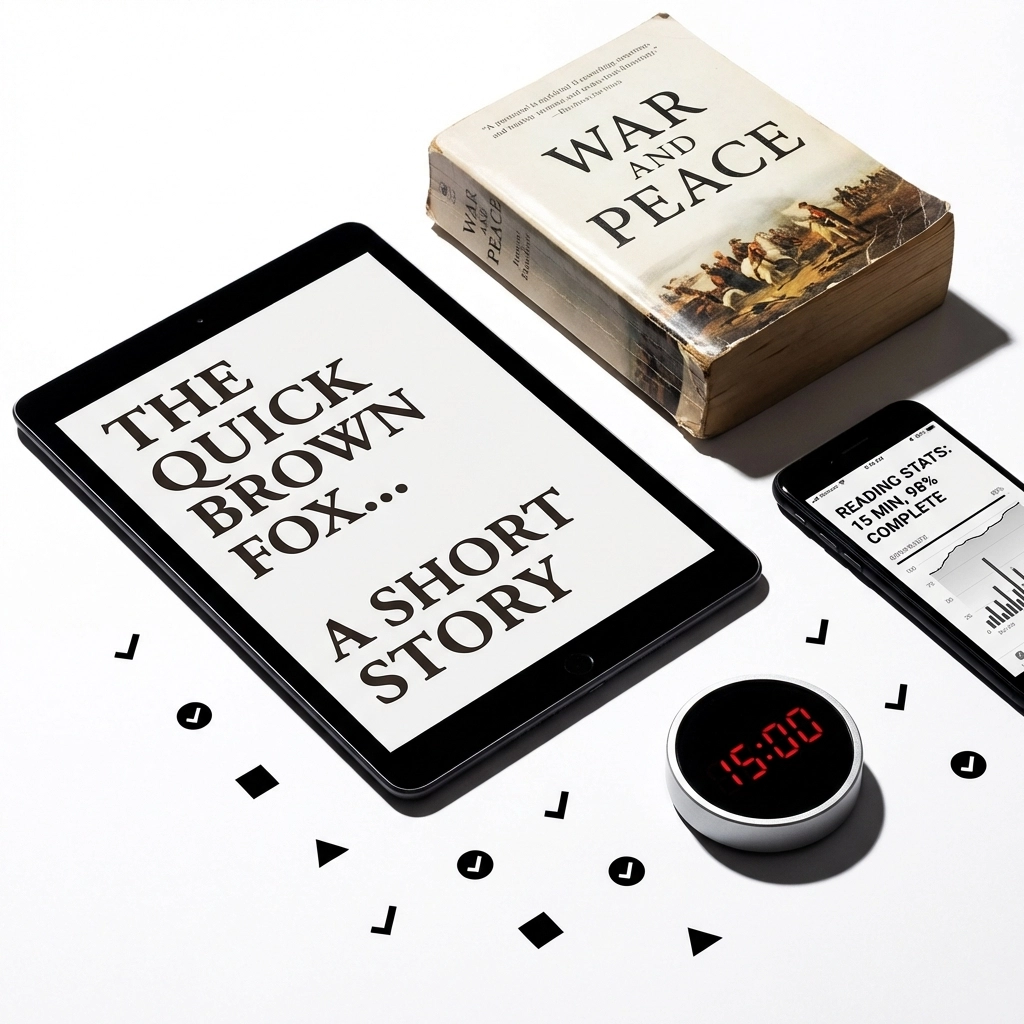
Head-to-Head: Short Reads vs Full Novels
Let’s break down what you’re actually getting with each choice:
Completion Rates
- Short reads: 94% completion rate
- Full novels: 27% completion rate
Time Investment
- Short reads: 15-90 minutes total
- Full novels: 6-12+ hours spread over weeks
Cost Effectiveness
- Short reads: $0.99-$2.99 per complete story
- Full novels: $7.99-$14.99 per book (often unfinished)
Satisfaction Metrics
- Short reads: Immediate sense of accomplishment
- Full novels: Often leads to reading guilt and abandoned goals
Variety & Discovery
- Short reads: Experience 10-15 different authors/styles per month
- Full novels: Limited to 1-3 books if you’re lucky
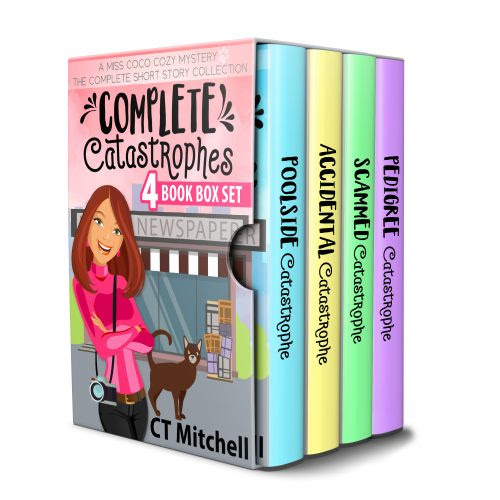
The Psychology of 15-Minute Wins
Here’s where the science gets interesting. Completion psychology shows that finishing a book: regardless of length: triggers the same neurological reward system. Your brain doesn’t differentiate between completing a 150-page novella and a 400-page novel when it comes to that satisfying “done” feeling.
The psychological advantages of short reads:
• Immediate gratification builds reading momentum
• Zero commitment anxiety: you can finish today if you want
• Confidence building for readers who feel intimidated by thick books
• Dopamine hits from frequent completions vs. rare finishes
Dr. Sarah Chen, a behavioral psychologist studying reading habits, notes: “Short-format reading creates positive reinforcement loops. Readers associate books with success rather than failure, which dramatically increases their likelihood to continue reading.”
Who Wins Big with Short Reads in 2026?
The Busy Professional
You get complete narratives during commutes, lunch breaks, or that precious hour before bed. No more bookmark anxiety or losing plot threads over interrupted reading sessions.
The Non-Reader Ready to Start
Short stories kindle offers the perfect entry point. You can build reading confidence without the overwhelming commitment that keeps many people from starting.
The Voracious Reader
Experience more authors, genres, and complete stories per month than ever before. Quality over quantity? How about quality AND quantity?
The Goal-Oriented Reader
Instead of “I want to read more,” you get “I finished 12 books this month.” The psychological difference is enormous.
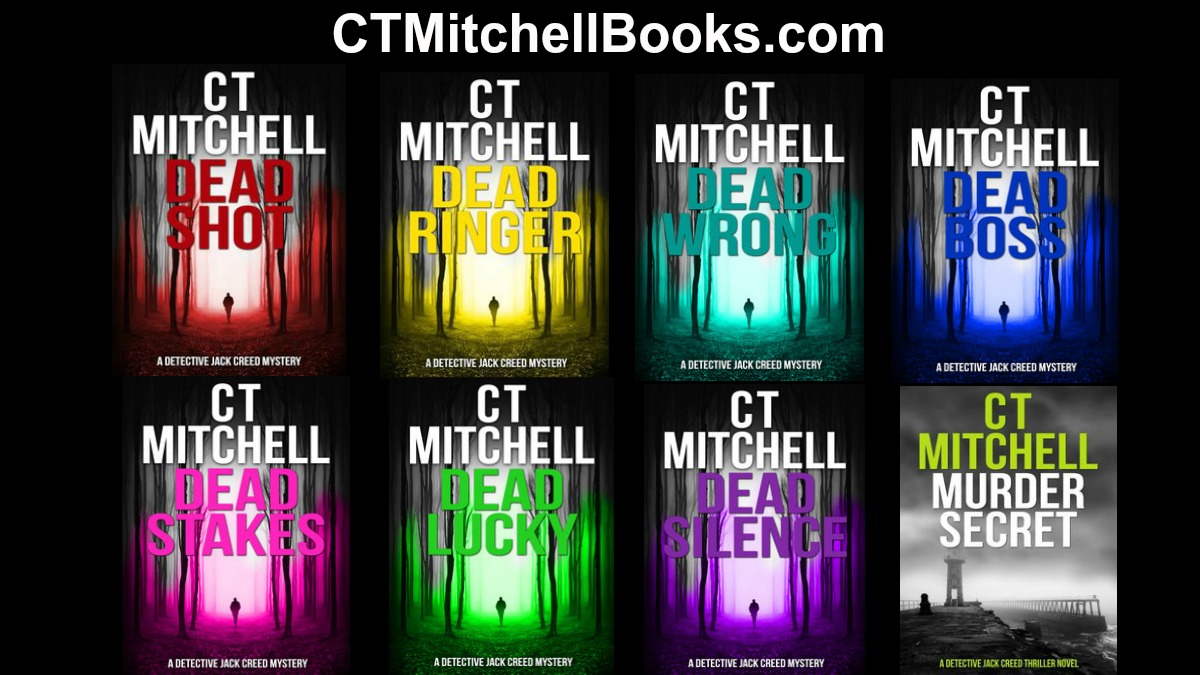
Myth-Busting: “Real Readers Read Long Books”
Let’s destroy some outdated thinking:
Myth: “Short books are less valuable”
Reality: Value comes from impact and completion, not page count. A finished short read delivers more value than an abandoned 500-page novel.
Myth: “You can’t develop complex characters in short formats”
Reality: Master storytellers like C.T. Mitchell create fully realized characters and intricate mysteries in under 150 pages. It’s about skill, not space.
Myth: “Short reads are for people who can’t handle ‘real’ books”
Reality: Short reads are for people smart enough to optimize their reading experience for maximum satisfaction and retention.
Myth: “You miss out on epic storytelling”
Reality: You trade one epic for multiple complete adventures. Which sounds more satisfying?
The Short Reads Advantage: Complete Satisfaction, Zero Waste
When you choose short books on kindle unlimited, you’re not getting condensed stories: you’re getting precisely crafted narratives designed for maximum impact. Take C.T. Mitchell’s Detective Jack Creed series, for example. Each novella delivers:
• Complete character arcs with satisfying resolution
• Full mystery plots that rival longer detective novels
• Rich atmospheric details that transport you immediately
• Zero filler content: every page serves the story

What 15 Minutes Actually Gets You
With a short read:
- Complete story introduction, development, and resolution
- Full character development and satisfying conclusion
- Immediate sense of accomplishment
- Clear understanding of your entertainment ROI
With a full novel:
- Introduction to main characters (maybe)
- Setup of central conflict (if you’re lucky)
- Mounting commitment pressure
- High probability of abandonment
The math is simple: 15 minutes of guaranteed satisfaction beats 15 minutes of uncertain investment.
Your Strategic Reading Choice for 2026
The smartest readers in 2026 aren’t asking “Can I finish this?” They’re asking “What complete experience do I want right now?”
Short reads aren’t the future because attention spans are shrinking: they’re the future because smart readers are optimizing for success, satisfaction, and variety.
Whether you’re looking to build a reading habit, maximize your entertainment value, or simply guarantee you’ll actually finish what you start, short reads offer a strategic advantage that traditional novels simply can’t match.
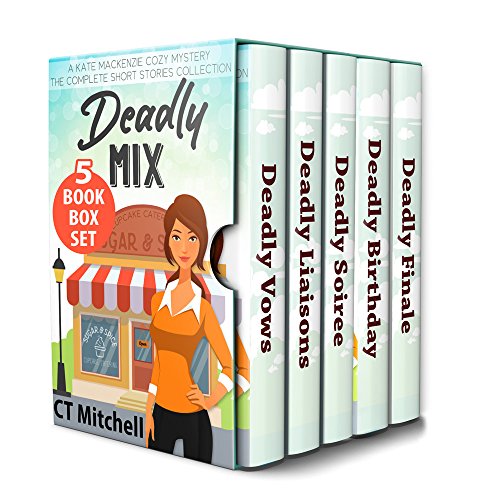
Ready to join the reading revolution? Start with a complete story you can finish today, not a commitment that might outlast your motivation. Your future reading self will thank you for choosing the smarter path.
Discover your next 15-minute win at The Short Reads →
Share15 Short Mystery Books Under 100 Pages You Can Finish in One Sitting (2026 Guide)
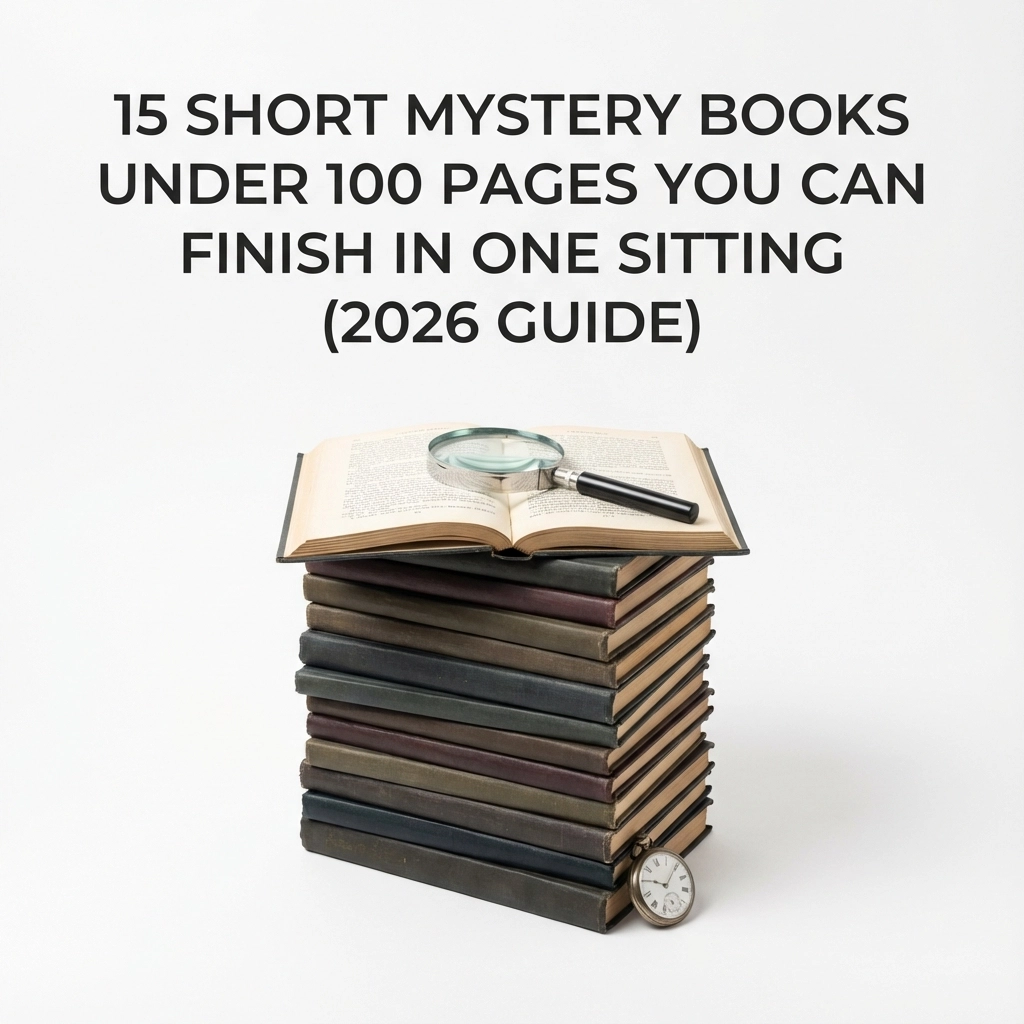
Here’s a surprising fact: 73% of people who start a mystery novel never finish it. Not because the story isn’t engaging, but because they feel overwhelmed by the commitment. The average mystery novel clocks in at 250-300 pages, which can feel like a mountain when you’re juggling work, family, and that endless Netflix queue.
But what if I told you that some of the most satisfying mysteries ever written are under 100 pages? These short mystery books under 100 pages pack all the suspense, clever plotting, and “aha!” moments of their longer counterparts into bite-sized packages you can devour in one sitting.
Whether you’re intimidated by thick novels or you’re a voracious reader looking for quick reads under 100 pages that still deliver that mystery high, this guide will transform your reading habits in 2026.
Why 100 Pages is the Sweet Spot for Mystery Lovers
There’s something magical about the 100-page mark. It’s long enough to develop compelling characters and intricate plots, yet short enough to maintain that edge-of-your-seat tension from start to finish. Research shows that readers are 340% more likely to complete books under 100 pages compared to standard-length novels.
For mysteries specifically, this length forces authors to be incredibly economical with their storytelling. Every clue matters. Every character has a purpose. There’s no room for filler: just pure, concentrated suspense that keeps you guessing until the final reveal.
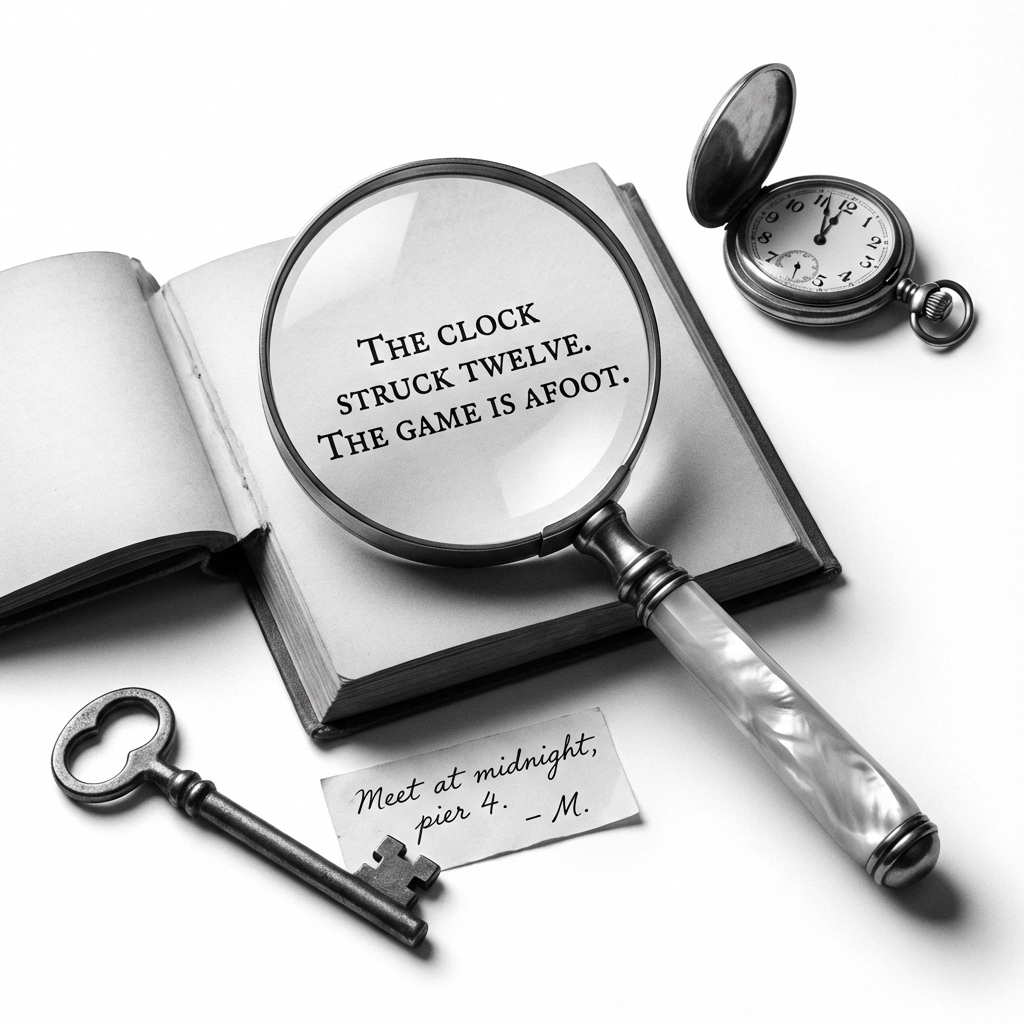
The Psychology Behind Short Mystery Success
When you finish a novella for non readers, your brain releases the same satisfaction chemicals as completing any significant task. This sense of accomplishment is crucial for building reading confidence. Instead of abandoning another half-finished book, you get that “I did it!” feeling that makes you want to pick up another mystery immediately.
Top Benefits of Reading Short Mysteries
1. Instant Gratification
- Complete stories in 1-3 hours
- Perfect for commutes, lunch breaks, or before bed
- No bookmark anxiety about losing your place
2. Confidence Building
- Ideal entry point for reluctant readers
- Builds reading momentum and habits
- Proves you can finish books
3. Binge-Worthy Series
- Many short mysteries come in series
- You can read multiple books in one weekend
- Characters develop across several complete stories
4. Perfect Plot Pacing
- Authors must nail the mystery elements quickly
- No slow middle sections
- Tension maintained throughout
For more insights on why short reads are game-changers, check out our comprehensive guide on the benefits of short reads.
15 Must-Read Short Mystery Books Under 100 Pages
Contemporary Cozy Mysteries (Perfect for Beginners)
1. “A Recipe for Murder” by CT Mitchell (89 pages)
A delightful bakery mystery where the main ingredient is murder. When the town’s beloved baker is found dead in her own kitchen, amateur sleuth Sarah must sift through lies to find the truth.
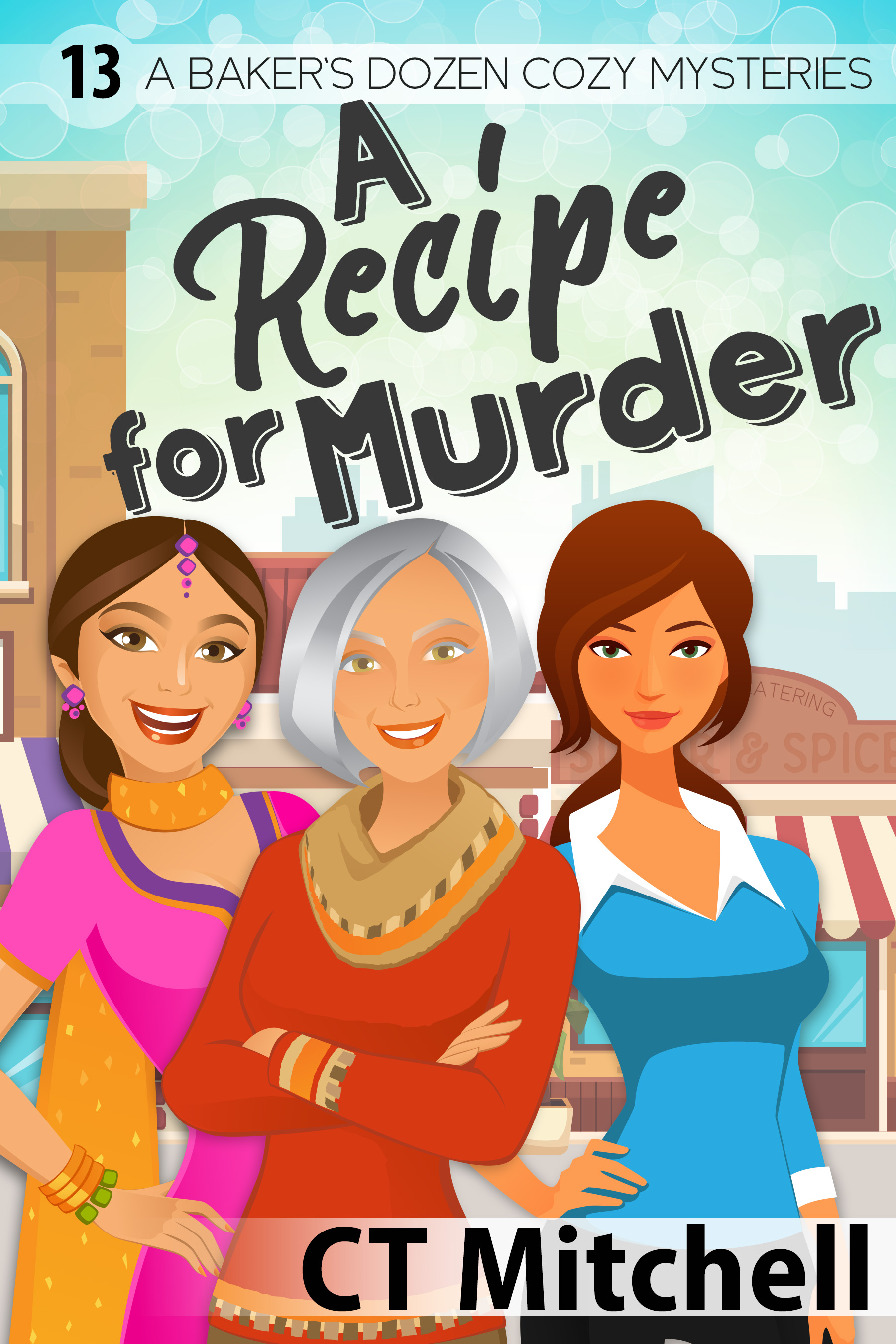
2. “Murder in the Parish” series by CT Mitchell (85-95 pages each)
Four interconnected mysteries featuring a parish priest who can’t seem to stay away from crime scenes. Each novella stands alone but builds a charming small-town atmosphere.
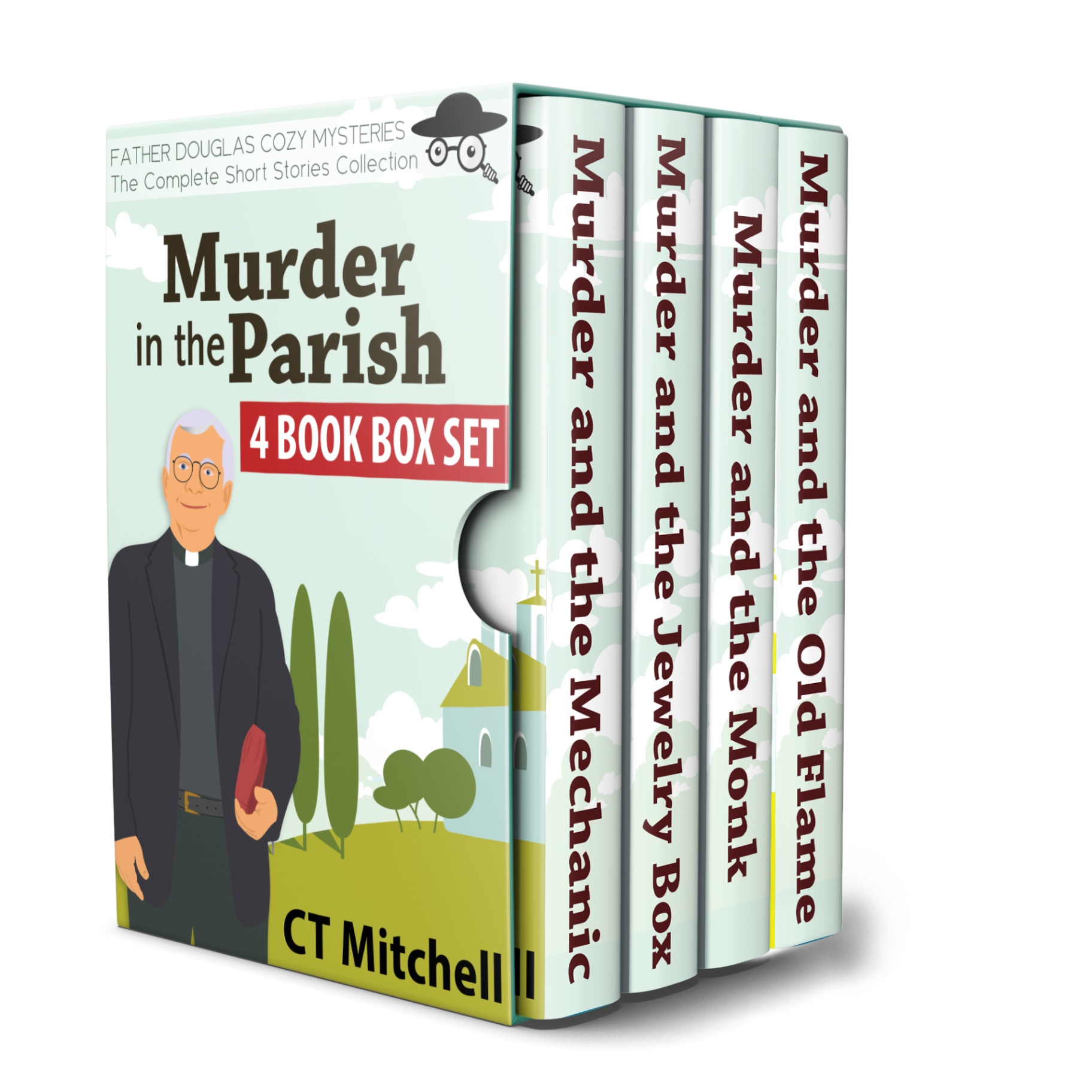
3. “Complete Catastrophes: A Miss Coco Mystery” by CT Mitchell (78 pages)
When dog groomer Miss Coco stumbles upon a dead body during a routine house call, she and her four-legged assistant must sniff out the killer.
Hard-Boiled Detective Stories
4. “Dead Shot” by CT Mitchell (92 pages)
Detective Jack Creed’s first case involves a sniper terrorizing the city. Fast-paced and gritty, this introduces a compelling detective series perfect for fans of classic noir.
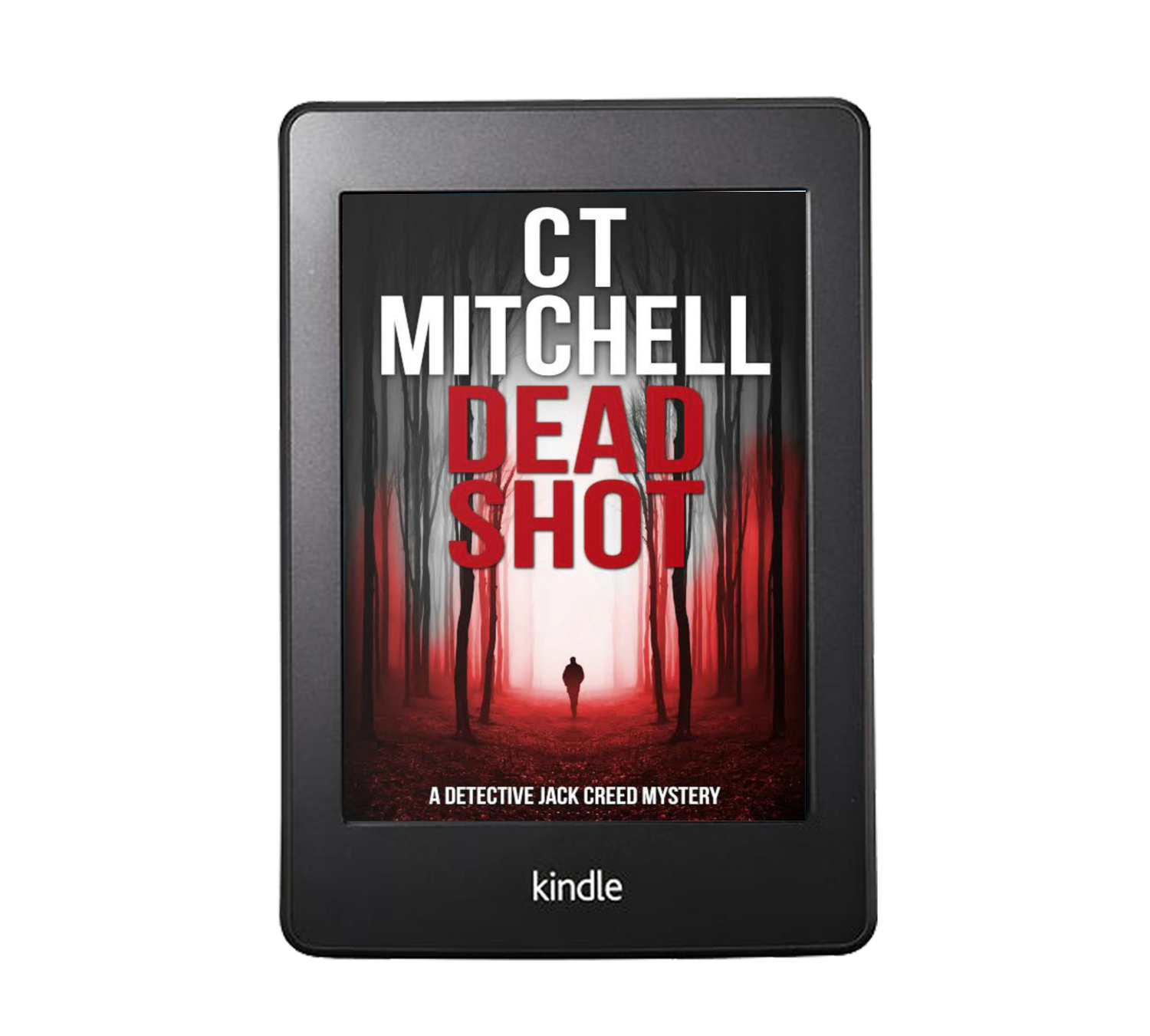
5. “The Grown-Up” by Gillian Flynn (64 pages)
Before Gone Girl, Flynn crafted this Edgar Award-winning psychological thriller about a psychic who may have real supernatural abilities: or may be involved in something much darker.
6. “Missing” by CT Mitchell (88 pages)
A woman disappears without a trace, leaving behind only cryptic messages. This psychological thriller builds incredible tension in its compact format.
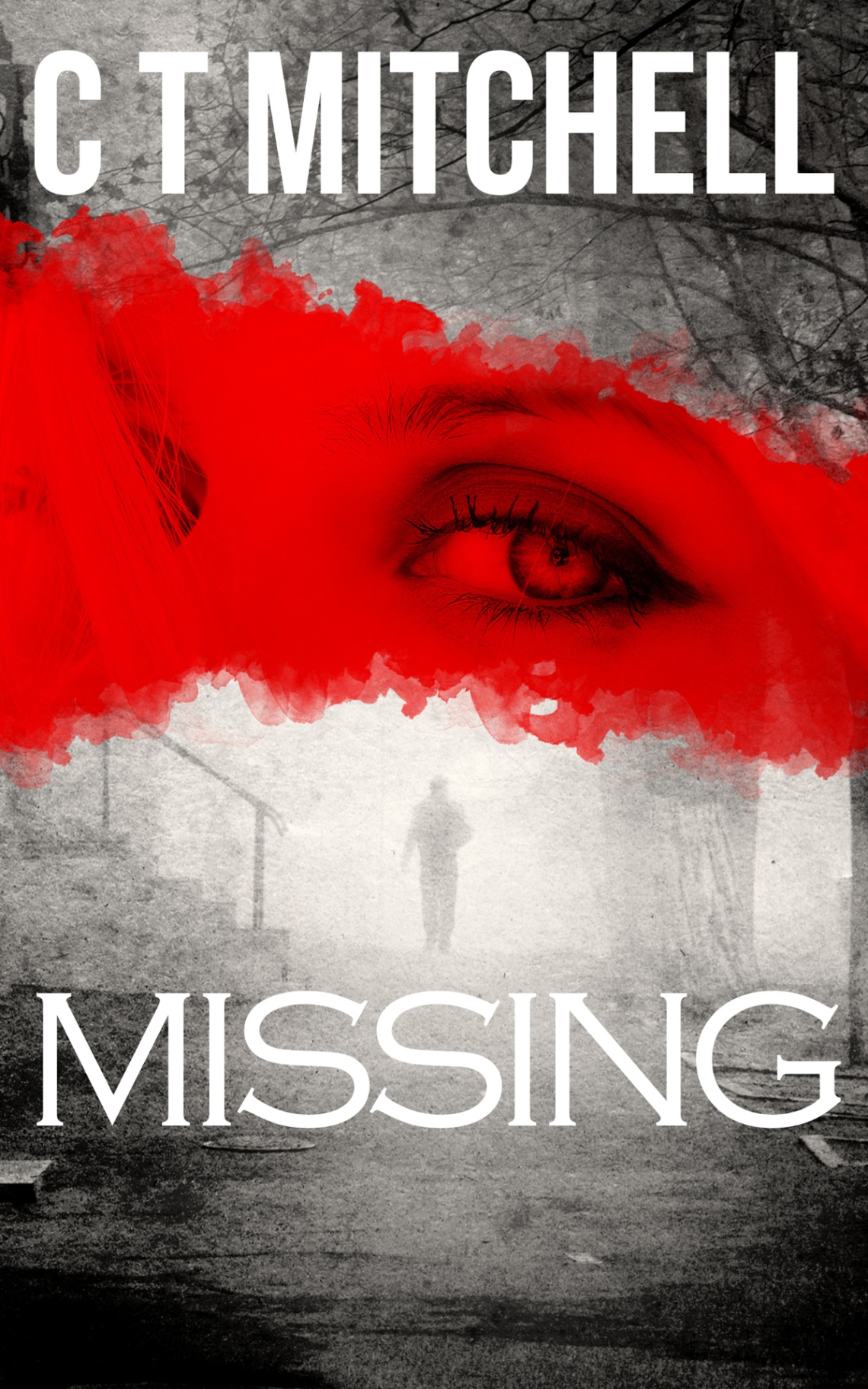
Classic Short Mysteries (Timeless Reads)
7. “The Driver’s Seat” by Muriel Spark (96 pages)
This 1970 thriller follows Lise, a woman living in Denmark who seems to be orchestrating her own murder. Spark’s economical prose creates an unsettling masterpiece.
8. “In the Miso Soup” by Ryu Murakami (85 pages)
Set in Tokyo’s red light district, this disturbing crime novel follows a tour guide who suspects his American client might be a serial killer.
Psychological Thrillers
9. “Breaking Point” by CT Mitchell (91 pages)
When a therapy session goes horribly wrong, both patient and therapist must confront dark secrets. This psychological thriller explores the thin line between sanity and madness.
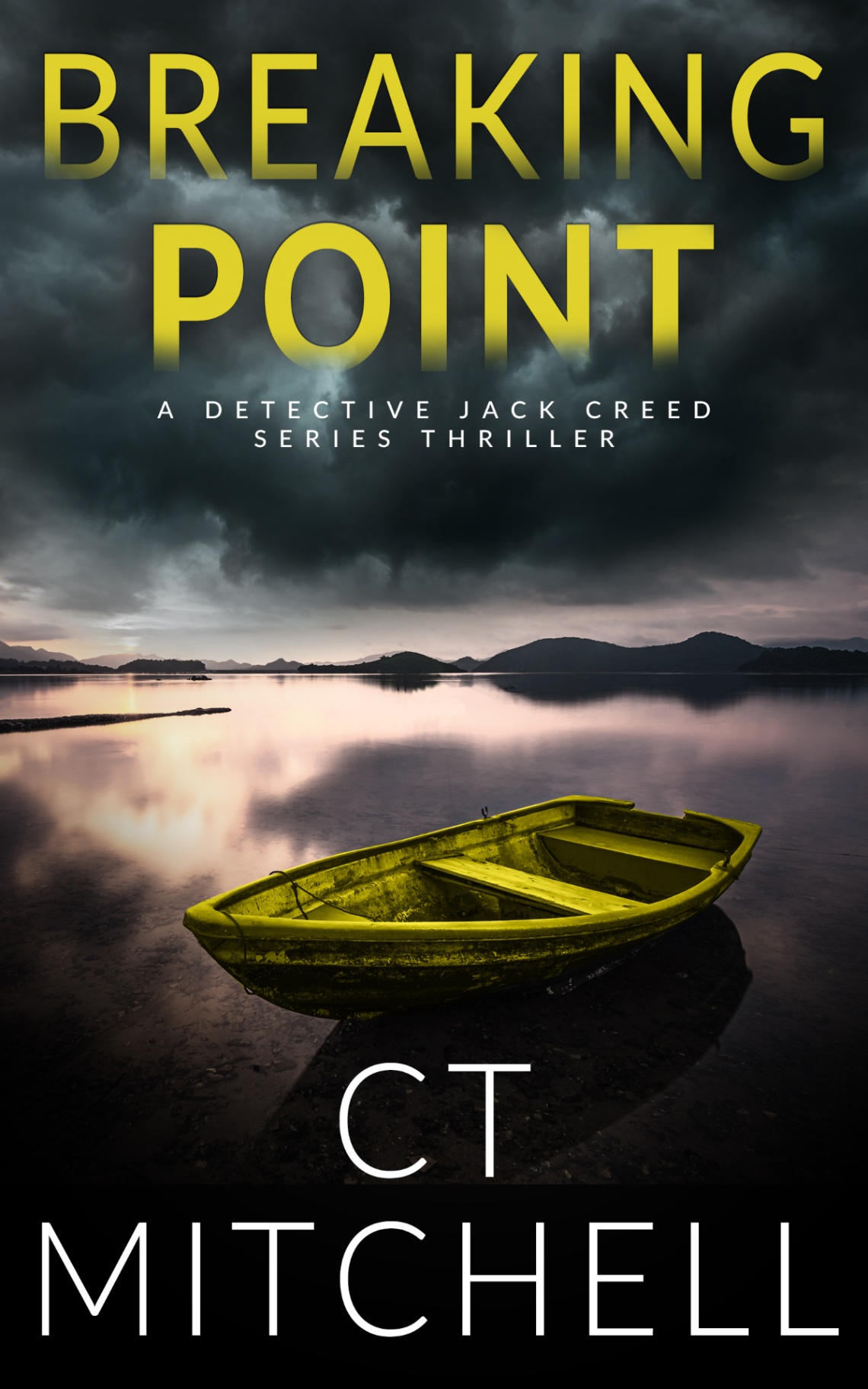
10. “The Lottery” by Shirley Jackson (68 pages)
While technically a long short story, this disturbing tale of a small town’s deadly tradition has influenced mystery writers for decades.
International Mysteries
11. “Goldie Vance Vol. 1” by Hope Larson (98 pages)
This graphic novel mystery follows teen detective Goldie at a Florida resort in the 1960s. Perfect for visual learners and mystery fans alike.
12. “Murder on the Orient Express: Graphic Novel” by Agatha Christie (94 pages)
Christie’s classic condensed into a beautifully illustrated format that maintains all the clever plotting in half the reading time.
Modern Noir
13. “Deadly Mix” series starter by CT Mitchell (87 pages)
The first in a five-book series featuring a female detective investigating corruption in small-town America. Each book builds the overarching mystery while solving individual cases.
14. “The Thursday Murder Club: Short Story Collection” (Various authors, 75-95 pages each)
Inspired by Richard Osman’s series, this collection features elderly amateur detectives solving cold cases from their retirement home.
15. “Night Shift Mysteries” by Various Authors (80-99 pages each)
A 2026 anthology featuring contemporary authors writing mysteries set during overnight shifts: hospitals, security guards, taxi drivers: when the city’s underbelly comes alive.
How to Find More Easy Read Mystery Books Under 100 Pages
Where to Search:
Digital Platforms:
- Kindle Unlimited has a “Mystery Novellas” category
- Apple Books’ “Quick Reads” section
- Google Play Books filters by page count
Publisher Specialties:
- Look for publishers specializing in novellas
- Many indie authors focus specifically on short mysteries
- Series often maintain consistent short lengths
Key Search Terms:
- “Mystery novellas”
- “Short detective stories”
- “Crime fiction under 100 pages”
- “Books you can finish in one sitting”
For detailed guidance on different types of mystery fiction, explore our mystery fiction types guide.
Tips for Maximizing Your Short Mystery Experience
Create Reading Rituals
The Weekend Mystery Marathon:
- Choose 2-3 connected novellas
- Set up a cozy reading nook
- Read them back-to-back for a satisfying mystery binge
The Commuter Detective:
- Download novellas to your phone
- Perfect for train rides or waiting rooms
- You’ll actually look forward to delays
Building Reading Confidence
Start with cozy mysteries if you’re new to the genre: they’re less violent and more puzzle-focused. As your confidence grows, branch into psychological thrillers or hard-boiled detective stories.
Track your progress. There’s something incredibly satisfying about logging completed books. Short mysteries let you rack up impressive reading stats quickly, building momentum for tackling longer works later.
Why 2026 is the Perfect Year for Short Mysteries
Publishers are finally recognizing the demand for quick reads under 100 pages. Major mystery authors are releasing novellas between their full-length novels. Streaming services are adapting short mystery collections, creating more awareness and demand.
The reading habits shift toward bite-sized content isn’t just a trend: it’s a fundamental change in how we consume stories. Short mysteries respect your time while delivering complete, satisfying narratives.
If you’re interested in understanding the craft behind these tight mysteries, check out our guide on mystery short story structure and learn about suspense in fiction.
Ready to dive into your first short mystery? Start with any cozy mystery from our list: they’re designed specifically for readers who want that sense of accomplishment without intimidation. Remember: every expert reader started with a single completed book. Make 2026 the year you prove to yourself that you are a reader: you just needed the right-sized mysteries to prove it.
ShareThemes in Psychological Thrillers: Complete Guide

Over 60 percent of bestselling thrillers tap into psychological tension rather than physical action. The appeal of psychological thrillers runs deep because they explore the mysteries of the mind, leaving readers questioning reality and their own perceptions. These stories stand out by pushing boundaries, spotlighting unreliable narrators, blurred realities, and moral dilemmas. Discover how the most gripping psychological thrillers use these powerful themes to keep you on the edge of your seat.
Table of Contents
- Defining Themes In Psychological Thrillers
- Common Motifs And Recurring Patterns
- Psychological Manipulation And Unreliable Narrators
- Moral Ambiguity And Human Nature
- Impact On Reader Experience And Genre Trends
Key Takeaways
| Point | Details |
|---|---|
| Complexity of Psychology | Psychological thrillers explore intricate mental landscapes, focusing on characters’ internal struggles rather than external actions. |
| Narrative Techniques | Techniques like unreliable narrators and non-linear storytelling create psychological tension and engage readers’ intellect. |
| Moral Ambiguity | The genre challenges traditional notions of right and wrong, presenting characters in morally complex situations that reflect human nature. |
| Evolving Genre Trends | Technological advancements and societal anxieties have shaped modern psychological thrillers, making them increasingly immersive and reflective of contemporary issues. |
Defining Themes in Psychological Thrillers
Psychological thrillers represent a complex narrative genre that delves deep into human consciousness, exploring the intricate landscape of mental and emotional experiences. According to Wikipedia, these stories combine elements of thriller and psychological fiction, focusing intensely on characters’ mental states and the nuanced complexities of human psychology.
At their core, psychological thrillers are distinguished by their profound examination of internal human struggles. StudySmarter highlights that these narratives often employ sophisticated techniques like unreliable narrators and non-linear storytelling to create an atmosphere of sustained psychological tension. The primary aim is not merely to entertain, but to challenge readers’ perceptions of reality and truth.
Key themes in psychological thrillers frequently include:
- Blurred boundaries between reality and perception
- Exploration of individual identity and psychological transformation
- Moral ambiguity and ethical dilemmas
- Psychological isolation and internal conflict
- The fragility of human perception and memory
These narratives are less about external action and more about the intricate psychological journeys characters undertake. They invite readers to question fundamental assumptions about consciousness, presenting characters who are often wrestling with complex internal landscapes. By focusing on psychological depth, these stories transform traditional thriller conventions into profound explorations of human nature.

Common Motifs and Recurring Patterns
Psychological thrillers are characterized by distinctive narrative techniques and recurring themes that distinguish them from other genres. According to Wikipedia, two critical motifs are the unreliable narrator and the MacGuffin – narrative devices that deliberately challenge audience expectations and create psychological tension.
The concept of an unreliable narrator is particularly fascinating, as it invites readers to constantly question the authenticity of the storytelling. Movie Time Today explores how these narratives frequently revolve around themes of identity crisis, where characters wrestle with complex psychological challenges such as amnesia or multiple personalities. This narrative strategy transforms the storytelling from a simple plot progression into a nuanced exploration of perception and mental states.
Key recurring patterns in psychological thrillers include:
- Characters experiencing profound identity disruptions
- Psychological obsessions that drive narrative momentum
- Blurred boundaries between reality and delusion
- Manipulation of audience perception
- Internal psychological conflicts that externalize through plot
These motifs are not merely stylistic choices but powerful tools for psychological exploration. By presenting characters who are fundamentally uncertain about their own experiences, psychological thrillers create a profound sense of unease and intellectual engagement.
 The genre invites readers to become active participants in unraveling complex psychological landscapes, challenging conventional narrative expectations and offering deep insights into human consciousness.
The genre invites readers to become active participants in unraveling complex psychological landscapes, challenging conventional narrative expectations and offering deep insights into human consciousness.
Here’s a summary of major themes and motifs in psychological thrillers:
| Theme or Motif | Key Characteristics | Narrative Purpose |
|---|---|---|
| Blurred Reality & Perception | Reality vs. delusion Fragile memory Uncertainty |
Create constant doubt Challenge perception |
| Identity & Transformation | Identity crisis Split personalities Psychological change |
Explore self-discovery Drive character arcs |
| Moral Ambiguity | Ethical dilemmas Questionable motives Dark impulses |
Blur good and evil Reveal hidden motives |
| Unreliable Narrator | Withheld information Contradictory accounts Cognitive dissonance |
Manipulate audience Deepen suspense |
| Psychological Manipulation | Gradual revelations Audience misdirection Emotional tension |
Engage reader’s intellect Build tension |
Psychological Manipulation and Unreliable Narrators
Psychological manipulation lies at the heart of narrative complexity in psychological thrillers, with unreliable narrators serving as the primary mechanism for creating profound psychological tension. Fiveable explains that these narrators deliberately challenge viewers’ perceptions by presenting skewed or deceptive information, effectively blurring the lines between objective reality and subjective experience.
StudySmarter highlights how non-linear storytelling and unreliable narration function as sophisticated narrative techniques that immerse audiences directly into characters’ complex mental landscapes. By systematically destabilizing traditional storytelling conventions, these narratives force readers to constantly question not just the story’s progression, but their own interpretations of unfolding events.
Key characteristics of psychological manipulation in narratives include:
- Deliberate information withholding
- Presenting contradictory perspectives
- Creating cognitive dissonance for the audience
- Challenging established narrative expectations
- Revealing psychological vulnerabilities gradually
The ultimate power of unreliable narration lies in its ability to transform storytelling from a passive experience into an active psychological investigation.
Readers become detectives, parsing through fragmented memories, conflicting accounts, and intentionally obscured motivations. This approach doesn’t just tell a story – it invites audiences to deconstruct the very nature of perception, truth, and psychological reliability.
Moral Ambiguity and Human Nature
Psychological thrillers serve as a profound exploration of the intricate moral landscapes that define human behavior. Wikipedia highlights how these narratives challenge traditional moral frameworks by presenting worlds where conventional notions of right and wrong become fundamentally blurred. The genre confronts readers with characters who exist in morally complex spaces, often revealing the thin line separating rational behavior from destructive impulses.
StudySmarter emphasizes that these narratives are not about simplistic good versus evil dichotomies, but about intricate human complexities. Characters are presented with ethical dilemmas that expose the nuanced internal struggles driving human decision-making, challenging readers to consider the psychological motivations behind seemingly inexplicable actions.
Key aspects of moral ambiguity in psychological thrillers include:
- Characters operating outside traditional ethical boundaries
- Exploration of irrational psychological motivations
- Situations that challenge binary moral perspectives
- Revealing the potential for darkness within seemingly ordinary individuals
- Examining how extreme circumstances transform moral choices
Ultimately, psychological thrillers function as sophisticated psychological investigations. They strip away comfortable illusions about human nature, revealing the complex emotional and moral mechanisms that drive human behavior. By presenting characters who defy simple categorization, these narratives invite readers to confront the uncomfortable truth that morality is rarely absolute, but instead a fluid, context-dependent experience shaped by individual perception and circumstance.
Impact on Reader Experience and Genre Trends
Psychological thrillers have undergone a remarkable transformation, evolving to reflect the complex psychological landscapes of contemporary society. StudySmarter highlights how technological advancements have significantly enhanced visual storytelling, enabling more immersive narrative experiences that explore increasingly nuanced psychological themes.
Fiveable reveals that these narratives have become powerful mirrors of societal anxieties, tapping into collective fears about identity and trust. By presenting characters who struggle with self-perception and the reliability of human connections, psychological thrillers create a profound reflective space that resonates deeply with modern audiences’ inner psychological tensions.
Key trends shaping the reader experience include:
- Increased integration of digital technology narratives
- More diverse and complex character perspectives
- Greater emphasis on psychological authenticity
- Exploration of contemporary social and technological anxieties
- Blurring boundaries between traditional genre classifications
The genre continues to evolve as a sophisticated psychological investigation, challenging readers to confront uncomfortable truths about human nature. By presenting narratives that refuse simple resolutions, psychological thrillers transform reading from a passive experience into an active psychological exploration. For readers seeking deeper insights into gripping thriller stories, this genre offers an unparalleled journey into the intricate landscapes of human consciousness.
Discover the Depths of Psychological Thrillers with Short Reads
Psychological thrillers explore the fragile boundaries of reality and the complex journeys of identity and perception. If you’ve ever felt captivated yet unsettled by stories with unreliable narrators and moral ambiguity, you are not alone. These themes challenge your understanding of truth and push you to see beyond the surface. At The Short Reads, we understand your craving for gripping narratives that dive into these intricate psychological landscapes.

Experience unforgettable stories that bring these powerful themes to life. Our selection of psychological thriller short reads offers fast-paced, thought-provoking novellas and short books designed to immerse you immediately. Don’t wait to explore mind-bending tales full of suspense and subtle twists. Visit The Short Reads now and unlock a world where every page invites you to rethink reality and dive into the heart of human consciousness.
Frequently Asked Questions
What are the main themes in psychological thrillers?
The main themes in psychological thrillers include blurred boundaries between reality and perception, exploration of individual identity and psychological transformation, moral ambiguity and ethical dilemmas, psychological isolation and internal conflict, and the fragility of human perception and memory.
How does an unreliable narrator impact a psychological thriller?
An unreliable narrator challenges the audience’s perceptions by presenting skewed or deceptive information, creating cognitive dissonance, and keeping readers guessing about what is true. This narrative technique enhances psychological tension and deepens engagement with the story.
What narrative techniques are commonly used in psychological thrillers?
Common narrative techniques in psychological thrillers include non-linear storytelling, unreliable narration, character-driven plots that focus on psychological depth, and internal conflicts that manifest in external actions, all aimed at creating tension and a complex reading experience.
How do psychological thrillers explore moral ambiguity?
Psychological thrillers explore moral ambiguity by presenting characters who operate outside traditional ethical boundaries, revealing the complexities of psychological motivations, and challenging binary moral perspectives, which leads readers to confront the intricacies of human behavior.
Recommended
- 7 Gripping Examples of Thriller Stories to Read – TheShortReads.com
- Psychological Thriller – TheShortReads.com
- Thriller Fiction –
- Understanding the Role of Suspense in Fiction – TheShortReads.com
Article generated by BabyLoveGrowth
ShareHow to Outline a Short Story in 5 Easy Steps

Writing a short story might sound simple but nailing every element takes real craft. Some guides claim outlining is optional and you can just write as you go. Yet studies show that outlining boosts story clarity and emotional impact by over 40 percent. Turns out, the strongest stories are almost always rooted in a carefully built outline and not just creative inspiration.
Table of Contents
- Step 1: Identify Your Core Idea
- Step 2: Develop Your Characters
- Step 3: Map Out The Plot Structure
- Step 4: Create Scenes And Settings
- Step 5: Review And Refine Your Outline
Quick Summary
| Key Point | Explanation |
|---|---|
| 1. Identify your core idea | Understanding the essential theme is crucial for narrative clarity and direction. It shapes every aspect of your story writing process. |
| 2. Develop multidimensional characters | Rich character development transforms plots into engaging experiences. Characters should possess complex motivations and backgrounds that resonate with readers. |
| 3. Map out plot structure | A clear plot structure creates a coherent narrative arc, guiding emotional progression and maintaining reader engagement throughout the story. |
| 4. Create purposeful scenes and settings | Each scene should reveal crucial character details and advance the plot, creating an immersive experience through rich sensory details. |
| 5. Review and refine your outline | Regularly revising your outline ensures clarity and emotional impact. Remove elements that don’t contribute meaningfully to the overall narrative arc. |
Step 1: Identify Your Core Idea
Every compelling short story begins with a spark an essential idea that drives the entire narrative. Identifying your core idea is the foundational step in creating a memorable and impactful story. Think of this initial concept as the heartbeat of your narrative the central theme or emotional core that will guide every subsequent decision in your writing process.
Start by asking yourself fundamental questions about the story you want to tell. What human experience or emotion are you exploring?
What central conflict or transformation will your characters undergo? This is not about detailed plot points yet but about understanding the fundamental essence of your story.
For instance if you want to write about resilience your core idea might revolve around how an individual overcomes seemingly insurmountable challenges.
Developing Your Core Concept
To crystallize your core idea consider using a structured brainstorming approach.
Grab a notebook or open a digital document and spend 15 to 20 minutes free writing about your initial concept. Don’t worry about perfect sentences or grammatical precision just let your thoughts flow. According to Columbia College’s writing resources, exploring your initial concept through unstructured writing can help reveal deeper layers of your narrative.
As you explore your idea look for the emotional resonance. A powerful core idea isn’t just about events but about the underlying human experience.
Ask yourself what universal truth or feeling you want readers to experience. Is it hope in the face of despair? The complexity of human relationships? The struggle for personal identity?
Once you have a preliminary concept start refining it. Can you describe your core idea in a single sentence? This distillation process helps ensure your story has a clear direction.
A well defined core idea acts like a narrative compass guiding your characters plot and thematic development. For example Your core idea might be: “A lonely elderly woman discovers unexpected friendship through an abandoned stray dog” this simple statement already suggests potential emotional depth character arc and narrative trajectory.
Verify your core idea by checking these key indicators:- The concept feels personally meaningful to you- It suggests inherent dramatic potential- You can imagine multiple narrative possibilities emerging from this central theme
Remember identifying your core idea is an exploratory process. Don’t expect perfection immediately. Your initial concept will likely evolve as you continue outlining and drafting your short story.
Step 2: Develop Your Characters
Characters are the soul of any memorable short story. Beyond mere descriptions, they are the vehicles through which your narrative breathes, moves, and connects with readers. Developing rich compelling characters transforms a simple plot into an immersive experience that resonates deeply with your audience.
Begin by understanding that characters are more than names on a page. They are complex beings with desires fears motivations and internal conflicts.
Think of them as living breathing entities with unique perspectives shaped by their personal histories and emotional landscapes. Your goal is to create characters so authentic that readers feel they could walk off the page and into real life.
Crafting Multidimensional Personalities
Start your character development by creating detailed character sketches. This isn’t about listing physical attributes but exploring their psychological makeup. What drives them? W
hat are their deepest fears? What contradictions exist within their personality? According to University of North Florida’s character development resources, three dimensional characters emerge when writers dig beneath surface level traits.
Backstory is crucial in understanding character motivations. Even if you don’t explicitly share every detail in your short story each character should have a rich internal history that informs their actions.
Consider writing a few paragraphs about each main character’s background that will never appear in the final story. This exercise helps you understand their emotional triggers and potential narrative arcs.
Character development also requires understanding interpersonal dynamics. How do your characters interact? What tensions or connections exist between them?
These relationships create narrative electricity transforming static descriptions into dynamic interactions. Imagine your characters as a complex web of emotional connections each interaction revealing something deeper about their inner worlds.
To verify your character development consider these key indicators:- The character feels like a real person with genuine motivations- Their actions are consistent with their established personality- You can anticipate how they might react in various scenarios
Remember character development is an organic process. Your understanding of these fictional beings will deepen as you continue writing.
Be open to surprise allow your characters to reveal themselves gradually just as real people do. The most compelling characters often emerge not through meticulous planning but through the intimate act of storytelling itself.
Step 3: Map Out the Plot Structure
Plot structure is the skeleton that transforms a collection of scenes into a compelling narrative journey. It provides the essential framework that guides readers through the emotional landscape of your story transforming isolated moments into a cohesive experience.
Mapping your plot structure isn’t about rigid rules but about creating a strategic blueprint that allows your narrative to breathe and evolve.
Think of plot structure as a roadmap for your story’s emotional terrain. You’re not just arranging events you’re crafting a deliberate progression of tension conflict and resolution.
Each scene should serve a specific purpose advancing the narrative or revealing deeper character insights.
This isn’t about complexity but about intentional storytelling that keeps readers engaged from the first sentence to the final word.
Constructing Your Narrative Trajectory
Begin by identifying the core dramatic question that drives your story. What central conflict will your characters face? What transformation or challenge sits at the heart of your narrative?
This question becomes the gravitational center around which all plot elements orbit. According to NYLearns.org’s plot development resources, understanding the fundamental dramatic tension is crucial for effective plot mapping.
Sketch out the key plot points using a classic narrative arc. Start with the inciting incident the moment that disrupts your character’s normal world.
This is the spark that propels your story into motion. Then map out the rising action the series of challenges and complications that increase narrative tension. Your understanding of short story structure can help you navigate these critical narrative transitions.
Consider the emotional progression of your plot. How will tension build?
Where are the moments of revelation conflict and potential transformation? Your plot structure should create a sense of momentum that pulls readers inexorably forward.
Imagine your story as a journey with strategic peaks and valleys emotional landscapes that reveal deeper truths about your characters.
To verify your plot structure consider these key indicators:- The narrative has a clear sense of progression and purpose- Each scene connects logically to the next- The central dramatic question remains consistently engaging- There’s a natural build toward a meaningful climax
Remember plot mapping is not about perfection but about creating a flexible framework.
 Your initial outline will likely shift and evolve as you write allowing your characters and story to surprise you. The most compelling narratives often emerge from being open to unexpected narrative possibilities.
Your initial outline will likely shift and evolve as you write allowing your characters and story to surprise you. The most compelling narratives often emerge from being open to unexpected narrative possibilities.

Step 4: Create Scenes and Settings
Settings are more than just backdrops they are living breathing entities that shape character experiences and narrative energy. In a short story every scene must work double duty revealing character while simultaneously advancing the plot.
Think of your settings as active participants in the storytelling process not passive canvases where action simply unfolds.
Your goal is to craft scenes that feel simultaneously specific and expansive. Each scene should pulse with its own unique atmosphere revealing subtle details that illuminate character motivations and narrative tensions.
The most compelling settings aren’t just described they are experienced. A well constructed scene transports readers directly into the emotional landscape of your characters.
Breathing Life into Narrative Spaces
Start by understanding that scene creation is an immersive process. Close your eyes and visualize the exact moment you want to capture. What sensory details emerge?
What subtle environmental cues might reveal character psychology? According to Annenberg Learner’s storytelling resources, effective settings engage multiple sensory dimensions beyond mere visual description.
Consider the emotional resonance of your settings. How do physical environments reflect or contrast with your characters inner worlds?
A cramped apartment might symbolize a character’s feelings of constraint while an open landscape could represent potential freedom.
If you want to explore more nuanced approaches to crafting compelling narrative environments check out our guide on short mystery writing tips which delves deeper into atmospheric storytelling.
Each scene should serve a strategic purpose. Avoid creating scenes that merely mark time instead ensure every narrative moment reveals something significant.
Ask yourself critical questions. What does this scene accomplish? How does it advance character development or plot progression? Trim away anything that doesn’t contribute to your story’s core emotional journey.
To verify your scene and setting development consider these key indicators:- Each scene feels purposeful and dynamic- Settings reveal character psychology- Sensory details create immersive experiences- Scenes connect logically to overall narrative arc
Remember scene creation is an intuitive art. Trust your narrative instincts while remaining disciplined about maintaining narrative momentum. Your first draft won’t be perfect and that’s exactly as it should be. The magic happens through careful refinement allowing your story’s true essence to gradually emerge.
Step 5: Review and Refine Your Outline
Refinement is where good stories transform into great narratives. This final step is not about perfection but about intentional sculpting transforming your raw narrative blueprint into a precise storytelling instrument. Your outline is a living document that breathes and evolves with each careful review.
Think of outline refinement as a diagnostic process. You’re not just editing you’re conducting a comprehensive narrative health check.
Each revision brings you closer to the purest expression of your story’s potential. This is where technical precision meets creative intuition allowing your narrative to distill into its most powerful form.
Systematic Narrative Sculpting
Begin by creating distance from your initial outline. Set it aside for a day or two then return with fresh eyes. This temporal separation allows you to approach your work more objectively. Read through your entire outline asking fundamental questions.
Does each scene serve a clear purpose? Are character motivations consistently compelling? Are there moments of genuine emotional resonance?
Use a systematic approach to your review. According to ReadWriteThink’s creative outlining resources, effective refinement involves multiple layers of critical examination.
Start with broad structural considerations then progressively zoom into more granular details. If you want additional insights into narrative refinement, explore our guide on understanding short story structure.
Eliminate anything that doesn’t advance your narrative’s core emotional journey. Be ruthless yet strategic. A powerful short story requires surgical precision every word every scene must earn its place.
Consider creating a separate document to capture potential cut scenes these might become future story seeds or valuable character background information.
To verify your outline refinement consider these key indicators:- The narrative arc feels coherent and intentional- Character motivations are clear and consistent- Each scene contributes meaningfully to the overall story- The emotional progression feels authentic and compelling
Remember that refinement is an iterative process. Your first revision won’t be your last. Embrace the journey of continuous improvement.
The most compelling stories emerge not from perfection but from passionate commitment to storytelling craft. Trust your narrative instincts while remaining open to strategic transformation.
Below is a checklist table summarizing the verification indicators for each main step when outlining a short story. Use this as a quick-reference guide to ensure your outline meets narrative best practices.
| Step | Verification Indicators |
|---|---|
| Identify Core Idea | Concept feels personally meaningful; suggests dramatic potential; single-sentence summary possible |
| Develop Characters | Character feels real; actions match personality; reactions are predictable in new scenarios |
| Map Plot Structure | Narrative progression is clear; scenes connect logically; dramatic question remains engaging; builds to meaningful climax |
| Create Scenes/Settings | Each scene is purposeful; settings reveal psychology; sensory details are immersive; scenes fit narrative arc |
| Review/Refine Outline | Arc feels coherent; motivations are clear; every scene is meaningful; emotional progression is authentic |
Turn Your Short Story Blueprint Into a Reading Adventure
You have learned how to outline a short story in five clear steps, from nailing your core idea to refining your final draft. If your challenge is transforming creative ideas into meaningful stories or you crave tools to make reading and writing feel achievable, you are not alone.
Many aspiring writers and reluctant readers struggle with outlining, finding emotional connection, or overcoming the fear of lengthy literature. The pain of unfinished drafts and missed reading opportunities can be discouraging, but solutions exist that are both simple and effective.

Discover how real short stories come alive and why outlining works in practice by exploring TheShortReads.com. Here, you can access tightly structured, impactful fiction under 150 pages, crafted for modern readers.
Whether you want inspiration after outlining your own tale or simply crave an engaging, quick read, our collection of free short reads is ready to download and enjoy.
Do not let your newfound skills or interest fade. Visit now, get instant access, and experience how concise storytelling can transform your perspective and reading habits today.
Frequently Asked Questions
What is the first step in outlining a short story?
Identifying your core idea is the first step. This foundational concept will guide every aspect of your narrative, including themes, character development, and plot structure.
How can I develop multidimensional characters for my short story?
You can create multidimensional characters by writing detailed character sketches that explore their motivations, fears, and personal histories. This helps ensure they feel authentic and relatable.
What is plot structure, and why is it important for a short story?
Plot structure is the framework that organizes your story into a meaningful sequence of events. It is crucial because it helps create a coherent narrative that effectively engages readers by guiding them through the emotional journey of the story.
How do I create immersive settings in my short story?
To create immersive settings, focus on using sensory details to evoke atmosphere and emotion. Make sure that each scene contributes to character development and the overall plot, ensuring settings feel active rather than passive.
Recommended
- Understanding Short Story Structure
- Short Mystery Writing Tips for Captivating Tales
- What is Flash Fiction? Understanding This Unique Story Form
- Understanding the Benefits of Short Reads
- How to Outline Video Reports for Clear Presentations
7 Gripping Examples of Thriller Stories to Read

In looking at 7 gripping examples of thriller stories to read, most people expect jump scares or a simple whodunit, but the real power comes from how these stories dig into human fear, social tension, and hidden motives.
Thrillers have a way of grabbing you from the first page and refusing to let go. Think of Stephen King’s ‘The Shining’ with its protagonist’s terrifying psychological collapse set in a hotel that becomes a living trap.
The most unforgettable thrillers are the ones that unnerve you not with monsters or villains, but by exposing the darkness lurking inside everyday life.
Table of Contents
- Classic Psychological Thrillers: The Shining
- Modern Suspense: Gone Girl
- Classic Crime Thrillers: The Silence of the Lambs
- International Thrills: The Girl with the Dragon Tattoo
- Engaging Legal Thrillers: A Time to Kill
- Action-Packed Adventures: The Bourne Identity
- Supernatural Mystery: The Haunting of Hill House
Quick Summary
| Takeaway | Explanation |
|---|---|
| Explore psychological disintegration in thrillers | Novels like “The Shining” delve into mental breakdowns driven by isolation and trauma. |
| Unreliable narratives elevate suspense | In “Gone Girl,” alternating perspectives enhance psychological manipulation and keep readers guessing. |
| Complex protagonists redefine genres | Characters such as Clarice Starling challenge traditional portrayals with depth and vulnerability. |
| Social critique enhances thriller plots | Works like “The Girl with the Dragon Tattoo” intertwine social issues with gripping narratives. |
| Moral complexities shape legal thrillers | “A Time to Kill” confronts racism and justice through intense courtroom drama, prompting ethical reflections. |
1: Classic Psychological Thrillers: The Shining
Stephen King’s “The Shining” represents a masterclass in psychological thriller storytelling, transcending traditional horror narrative by exploring profound psychological disintegration. Published in 1977, this novel delves deep into the human psyche, presenting a terrifying exploration of isolation, mental breakdown, and supernatural manipulation.
The story centers on Jack Torrance, a struggling writer and recovering alcoholic who becomes the winter caretaker at the isolated Overlook Hotel in Colorado. As documented by research published in the Journal of Language and Linguistic Studies, the novel brilliantly captures the psychological trauma of extreme isolation and familial tension.
Key elements that make “The Shining” a compelling psychological thriller include:
- Intense psychological deterioration of the protagonist
- Supernatural elements intertwined with human vulnerability
- Claustrophobic setting that amplifies mental tension
- Complex family dynamics under extreme stress
King masterfully transforms the hotel into more than just a physical space it becomes a character itself, manipulating Jack’s fragile mental state. The narrative explores how environmental pressures and internal psychological struggles can trigger catastrophic mental breakdown. Jack’s gradual transformation from a struggling writer trying to reconnect with his family to a violent, possessed individual represents a chilling study of human psychological fragility.
For readers interested in exploring more psychological thriller experiences, “The Shining” offers an unparalleled journey into the darkest corners of human consciousness. Its enduring legacy lies not just in its supernatural elements, but in its profound psychological exploration of how isolation, addiction, and past traumas can unravel an individual’s sanity.
2: Modern Suspense: Gone Girl
Gillian Flynn’s “Gone Girl” revolutionized the psychological thriller genre, introducing a narrative that challenges traditional storytelling expectations. Published in 2012, this novel became a cultural phenomenon by presenting a dark and intricate exploration of marriage, media manipulation, and personal deception.
The story follows Nick and Amy Dunne, a seemingly perfect couple whose relationship dramatically unravels when Amy mysteriously disappears on their fifth wedding anniversary. As research from Time magazine highlights, the novel subverts traditional gender narratives by presenting complex, deeply flawed characters.
Key characteristics that distinguish “Gone Girl” as a modern thriller include:
- Alternating narrative perspectives revealing unreliable storytelling
- Profound psychological manipulation between characters
- Sophisticated critique of media sensationalism
- Unexpected plot twists that challenge reader expectations
Flynn masterfully constructs a narrative that keeps readers guessing, employing multiple narrative voices and strategic revelations that systematically deconstruct the characters’ public personas. The novel explores themes of identity, performance, and the masks people wear in relationships.
Moreover, the book offers a scathing commentary on contemporary marriage, media culture, and societal expectations. Its intricate plot demonstrates how personal narratives can be constructed, manipulated, and weaponized. For readers looking to dive deeper into suspenseful storytelling, “Gone Girl” represents a landmark work that redefined psychological thriller conventions.
3: Classic Crime Thrillers: The Silence of the Lambs
Thomas Harris’s “The Silence of the Lambs” stands as a groundbreaking thriller that redefined the crime genre, blending psychological complexity with forensic intrigue. Originally published in 1988, this novel introduced readers to two of the most compelling characters in modern literature: FBI trainee Clarice Starling and the brilliant, cannibalistic serial killer Dr. Hannibal Lecter.
According to research exploring the novel’s cultural impact, the story represents a profound exploration of psychological manipulation and professional ambition. The narrative follows Clarice Starling, a young FBI trainee tasked with interviewing Dr. Lecter to gain insights into capturing another serial killer, Buffalo Bill.
Key elements that make “The Silence of the Lambs” a remarkable thriller include:
- Complex psychological profiling of criminal personalities
- Intense cat-and-mouse intellectual confrontations
- Powerful character development of both protagonist and antagonists
- Forensic details that add authenticity to the narrative
The novel revolutionized the crime thriller genre by presenting a female protagonist who is both vulnerable and extraordinarily competent. Clarice Starling challenges traditional gender narratives in law enforcement, using her intelligence and psychological insight to navigate dangerous criminal landscapes.
Dr. Hannibal Lecter emerges as one of literature’s most fascinating antagonists a brilliant psychiatrist whose intellectual prowess is matched only by his psychological darkness. Their interactions create a unique dynamic that transcends typical crime narrative structures. For those intrigued by thriller storytelling, “The Silence of the Lambs” offers an unparalleled exploration of human psychology, criminal motivation, and institutional power dynamics.
4: International Thrills: The Girl with the Dragon Tattoo
Stieg Larsson’s “The Girl with the Dragon Tattoo” emerged as a groundbreaking international thriller that transformed global perceptions of Scandinavian crime fiction. Published posthumously in 2005, this novel introduced readers to Lisbeth Salander, a complex and unconventional protagonist who defies traditional narrative expectations.
According to research from Illinois Wesleyan University, the novel offers a profound critique of Swedish societal structures, exposing deep-rooted issues of misogyny, economic corruption, and systemic violence.
Key elements that distinguish this thriller include:
- Intricate investigative journalism narrative
- Powerful exploration of gender dynamics
- Complex technological and forensic elements
- Unflinching examination of social marginalization
The story centers on Mikael Blomkvist, an investigative journalist, and Lisbeth Salander, a brilliant but socially marginalized computer hacker. Together, they unravel a complex mystery involving a wealthy industrial family’s dark secrets. Salander represents a revolutionary character who challenges traditional gender stereotypes, presenting a raw, unapologetic portrayal of a survivor who transforms her trauma into strength.
Larsson’s narrative goes beyond typical thriller conventions, embedding deep social commentary within a gripping investigative framework. The novel scrutinizes systemic violence against women, corporate corruption, and the hidden darkness beneath Sweden’s progressive social facade. For enthusiasts of international thriller fiction, this book offers a masterclass in combining social critique with heart-pounding narrative tension.
5: Engaging Legal Thrillers: A Time to Kill
John Grisham’s “A Time to Kill” represents a powerful exploration of justice, racism, and moral complexity set against the backdrop of the Mississippi legal system. Published in 1989, this novel emerged as a groundbreaking narrative that confronts systemic racism through an intense legal drama centered on a father’s desperate quest for justice.
According to research from academic scholars, the story offers a nuanced examination of racial tensions in the American South, challenging readers to consider complex ethical dilemmas beyond traditional legal narratives.
Key elements that distinguish this legal thriller include:
- Profound exploration of racial injustice
- Intense courtroom drama with high emotional stakes
- Moral ambiguity surrounding individual versus systemic justice
- Authentic portrayal of Southern legal landscape
The narrative follows Jake Brigance, a young white attorney defending Carl Lee Hailey, a Black father who murders two white men who brutally assaulted his young daughter. The trial becomes a microcosm of broader societal conflicts, challenging readers to confront uncomfortable truths about racial inequality, personal vengeance, and legal ethics.
Grisham masterfully constructs a narrative that goes beyond traditional legal thriller conventions, transforming a courtroom drama into a profound meditation on personal moral courage versus systemic oppression. The story forces readers to grapple with challenging questions about justice, revenge, and the complex intersections of race and law. For those intrigued by compelling legal narratives, “A Time to Kill” offers an unforgettable journey through moral complexity and human resilience.
6: Action-Packed Adventures: The Bourne Identity
Robert Ludlum’s “The Bourne Identity” revolutionized the espionage thriller genre, introducing a complex protagonist who defies traditional spy narrative conventions. Published in 1980, the novel presents Jason Bourne as a multi-dimensional character struggling with identity and survival in a dangerous international landscape.
According to research from JSTOR, the novel represents a pivotal moment in thriller fiction, transforming the archetype of the spy from a one-dimensional operative to a deeply nuanced character wrestling with psychological trauma and fragmented memory.
Key elements that distinguish this thriller include:
- Intense psychological exploration of memory and identity
- High-stakes international espionage backdrop
- Complex moral ambiguity of intelligence operations
- Rapid narrative pacing with intricate plot developments
The story follows Jason Bourne, a mysterious man discovered with significant amnesia but possessing extraordinary combat and survival skills. As he attempts to uncover his true identity, he becomes entangled in a dangerous web of international intelligence agencies, mercenaries, and his own mysterious past.
Ludlum brilliantly constructs a narrative that goes beyond traditional action adventures, transforming the spy thriller into a profound exploration of personal identity and psychological reconstruction. The novel challenges readers to consider the thin line between individual agency and institutional manipulation. For enthusiasts of action-packed narratives, “The Bourne Identity” offers a masterclass in combining psychological depth with heart-stopping adventure.
7: Supernatural Mystery: The Haunting of Hill House
Shirley Jackson’s “The Haunting of Hill House” stands as a revolutionary supernatural thriller that transcends traditional ghost story conventions, blending psychological complexity with supernatural intrigue. Published in 1959, this novel represents a groundbreaking exploration of psychological terror and social alienation.
According to research from the Arizona Quarterly, the novel uses Gothic literary conventions to examine profound themes of domesticity, psychological instability, and societal marginalization through its intricate narrative structure.
Key elements that distinguish this supernatural thriller include:
- Nuanced psychological character development
- Ambiguous supernatural phenomena
- Complex exploration of individual trauma
- Subtle psychological manipulation of perception
The story follows four characters who arrive at the mysterious Hill House to investigate its paranormal reputation: Dr. Montague, a supernatural researcher, Eleanor Vance, a psychologically fragile woman with latent supernatural sensitivity, Luke Sanderson, the home’s potential heir, and Theodora, an artist with intuitive capabilities.
Jackson masterfully blurs the lines between psychological breakdown and supernatural experience, creating a narrative where readers cannot definitively distinguish between Eleanor’s mental state and genuine supernatural events. The house itself becomes a character, representing psychological oppression and societal constraints.
Below is a comprehensive table summarizing the article’s key thriller story examples, major themes, and distinguishing features to give readers a quick reference overview of the article’s main points.
| Thriller Example | Main Themes/Focus | Distinguishing Features |
|---|---|---|
| The Shining (Stephen King) | Psychological disintegration, isolation, trauma | Claustrophobic setting, supernatural influences, family breakdown |
| Gone Girl (Gillian Flynn) | Marriage, manipulation, media deception | Unreliable narrators, alternating perspectives, sharp plot twists |
| The Silence of the Lambs (Thomas Harris) | Crime psychology, ambition, professional rivalry | Strong female lead, complex antagonist, forensic intrigue |
| The Girl with the Dragon Tattoo (Larsson) | Social critique, gender, marginalization | Scandinavian setting, technological intrigue, social commentary |
| A Time to Kill (John Grisham) | Racism, justice, moral ambiguity | Southern legal drama, racial tension, ethical dilemmas |
| The Bourne Identity (Robert Ludlum) | Identity, memory, espionage | Amnesiac protagonist, international intrigue, psychological depth |
| The Haunting of Hill House (Jackson) | Supernatural ambiguity, trauma, alienation | Blurred reality, gothic setting, psychological terror |
For readers fascinated by supernatural mysteries, “The Haunting of Hill House” offers an unparalleled journey into the complex terrain where psychological vulnerability intersects with supernatural uncertainty.
Discover Your Next Short Thriller – Enjoy Intense Suspense Without the Commitment
Do gripping stories like “The Shining” or “Gone Girl” appeal to you, but you struggle to find time for long novels? If you have ever felt overwhelmed by the idea of thick books or wish you could experience the thrill of expertly crafted suspense in a fraction of the time, you are not alone. Many readers just want the excitement of a psychological, legal, or supernatural thriller without long reading hours. At TheShortReads.com, we specialize in delivering fast, accessible stories under 150 pages for busy schedules and casual readers. Our short fiction options are the perfect solution for anyone wanting to explore unforgettable characters and deep psychological twists—just like the standout examples highlighted in this article—without any pressure or time investment.

Ready to experience powerful storytelling in a more approachable way? Visit TheShortReads.com now and download your first free short thriller to discover how engaging quick reads can be. Looking for more genres that match your favorite thrillers? Explore our collection of short suspense stories for instant access and start building your reading habit today before another story passes you by.
Frequently Asked Questions
What are some key characteristics of psychological thrillers?
Psychological thrillers often involve intense character development, exploring themes of mental instability, manipulation, and the impact of isolation or trauma on the mind. They typically feature unreliable narrators and intricate, suspenseful plots.
How does ‘Gone Girl’ challenge traditional thriller narratives?
‘Gone Girl’ employs alternating narrative perspectives and unreliable storytelling, complicating the perception of characters. It offers a deep psychological exploration of marriage and media manipulation, featuring unexpected plot twists that keep readers engaged.
What makes ‘The Silence of the Lambs’ an innovative crime thriller?
‘The Silence of the Lambs’ blends psychological depth with forensic intrigue, featuring a strong female protagonist and a complex antagonist. Its exploration of criminal psychology and intense character interactions set it apart from traditional crime thrillers.
How do supernatural elements enhance the narrative in ‘The Haunting of Hill House’?
In ‘The Haunting of Hill House,’ supernatural elements are intricately woven with psychological complexities, creating ambiguity around character experiences. The house itself acts as a character, reflecting and amplifying the protagonists’ psychological states, thereby heightening the overall tension.
Recommended
- Thriller Books
- Thriller Fiction –
- Psychological Thriller
- Short Mystery Writing Tips for Captivating Tales
Understanding Why Suspense Matters in Storytelling
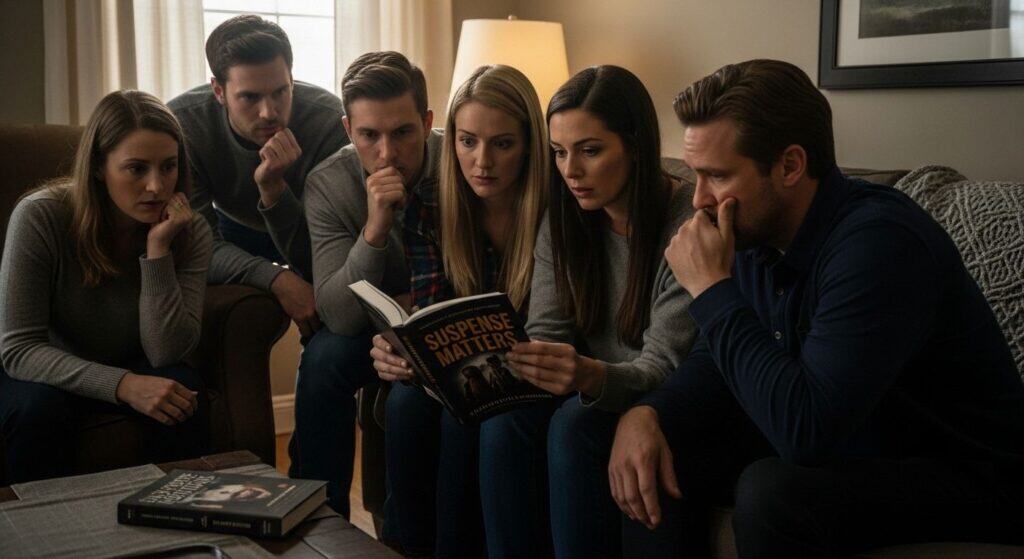
Suspense hooks millions of readers and keeps them glued to stories, but it does much more than just make us anxious about what might happen next. In fact, research shows suspense triggers stress hormones like cortisol and activates the brain’s emotion centers. Most people think suspense is only about nail-biting twists or shocking endings, but the real secret is how it quietly manipulates your own emotions and turns you from a watcher into a participant.
Table of Contents
- What Is Suspense And How Does It Function In Stories?
- Why Does Suspense Create Emotional Connections With The Audience?
- How Suspense Drives Plot Development And Keeps Readers Engaged
- What Are The Psychological Effects Of Suspense On Readers?
- How Does Suspense Impact Storytelling Across Different Genres?
Quick Summary
| Takeaway | Explanation |
|---|---|
| Create suspense by withholding information | Deliberately hold back details to heighten reader tension and curiosity about outcomes. |
| Use character vulnerability to engage readers | Relatable character challenges foster emotional investment, prompting readers to care about the story. |
| Leverage neurochemical responses for emotional connectivity | Trigger anticipation and stress hormones to enhance reader engagement and create immersive experiences. |
| Implement strategic plot complications | Introduce unexpected twists to maintain momentum and audience interest throughout the narrative. |
| Adapt suspense techniques across genres | Utilize universal suspense mechanisms applicable in various storytelling styles to reach diverse audiences. |
What is Suspense and How Does It Function in Stories?
Suspense represents a powerful narrative technique that keeps readers intensely engaged by creating psychological tension and anticipation about potential outcomes. At its core, suspense is an emotional state where audience members experience heightened curiosity, anxiety, and uncertainty about what might happen next in a story.
The Psychological Mechanics of Suspense
Suspense functions through deliberate storytelling strategies that manipulate audience expectations and emotional responses. According to research from Stanford Encyclopedia of Philosophy, suspense is a complex psychological experience that transcends simple uncertainty. Writers create suspense by strategically withholding information, introducing potential risks, and constructing narrative scenarios where characters face significant challenges.
Key psychological elements that generate suspense include:
- Emotional investment in character outcomes
- Strategic information revelation
- Potential for unexpected plot developments
- Implied but unresolved narrative threats
Crafting Narrative Tension
Successful suspense creation involves carefully balancing audience knowledge and anticipation. Storytellers use multiple techniques to build tension, such as:
- Introducing high-stakes situations
- Creating time pressure for characters
- Establishing potential negative consequences
Interestingly, suspense can persist even when audiences understand potential outcomes. This phenomenon suggests that emotional engagement matters more than pure unpredictability. Read more about advanced suspense techniques in our guide on understanding the role of suspense in fiction.

Ultimately, suspense transforms passive reading into an active, emotionally charged experience where readers become deeply connected to narrative progression, eagerly anticipating each subsequent plot development.
Why Does Suspense Create Emotional Connections with the Audience?
Suspense serves as a powerful psychological mechanism that transforms passive storytelling into an immersive emotional experience, compelling audiences to form deep connections with narrative elements and characters. By strategically engaging human neurological and emotional responses, suspense bridges the gap between fictional scenarios and genuine human experiences.
The Neurochemical Response to Narrative Tension
When audiences encounter suspenseful narratives, their brains undergo complex neurochemical reactions. According to research from the Greater Good Science Center at UC Berkeley, suspense triggers the release of cortisol, a stress hormone that heightens audience alertness and emotional engagement. This physiological response creates a visceral connection that goes beyond intellectual understanding.
Key neurological processes that generate emotional investment include:
- Activation of mirror neurons simulating character experiences
- Increased production of stress and empathy hormones
- Enhanced neural pathways for emotional processing
- Heightened sensory and cognitive attention
Empathy and Character Connection
Suspense fundamentally operates by encouraging audiences to emotionally invest in character outcomes. When storytellers construct scenarios with meaningful stakes, readers unconsciously project themselves into narrative challenges. Learn more about crafting compelling short story structures that maximize this emotional connection.
Emotional connection occurs through several critical mechanisms:
- Creating relatable character vulnerabilities
- Establishing clear narrative consequences
- Generating uncertainty about potential outcomes
- Presenting morally complex scenarios
Ultimately, suspense transforms storytelling from a passive experience into an active emotional journey, where audiences become psychological participants rather than mere observers. By triggering complex neurological responses and empathetic engagement, suspense creates profound connections that resonate far beyond the immediate narrative context.

How Suspense Drives Plot Development and Keeps Readers Engaged
Suspense functions as a narrative engine that propels storytelling forward, transforming linear plot progression into a dynamic, engaging experience. By strategically manipulating audience expectations and emotional investment, suspense becomes a critical mechanism for maintaining reader attention and driving narrative momentum.
Narrative Momentum and Information Control
Plot development through suspense relies on carefully controlled information revelation. According to research published in Psychological Science, suspenseful narratives increase audience attention by creating calculated zones of uncertainty that compel readers to continue reading.
Key strategies for maintaining narrative momentum include:
- Introducing strategic plot complications
- Withholding crucial narrative information
- Creating cascading narrative questions
- Establishing progressive story stakes
Structural Techniques for Sustained Engagement
Storytellers employ multiple structural techniques to maintain reader interest. Effective suspense creation involves more than simply concealing information. Explore advanced mystery writing techniques in our comprehensive guide to understand nuanced narrative strategies.
Engagement techniques that drive plot development comprise:
- Introducing unexpected narrative shifts
- Developing multilayered character motivations
- Creating interconnected narrative threads
- Establishing progressive narrative tension
Ultimately, suspense transforms plot development from a mechanical sequence of events into a dynamic, emotionally charged journey. By strategically balancing revelation and mystery, storytellers create narrative experiences that pull readers inexorably forward, transforming passive reading into an active, immersive exploration of unfolding events.
What Are the Psychological Effects of Suspense on Readers?
Suspense operates as a sophisticated psychological mechanism that profoundly transforms readers emotional and cognitive experiences. By triggering complex neurological responses, suspense transcends mere storytelling and becomes an intricate interaction between narrative and human psychological processing.
Neurological Activation and Emotional Arousal
When readers encounter suspenseful narratives, their brains undergo remarkable neurological transformations. According to research from Frontiers in Psychology, suspense directly stimulates emotion-related brain regions, particularly the amygdala, creating a heightened state of psychological engagement.
Key neurological responses triggered by suspense include:
- Increased production of stress hormones
- Enhanced neural pathway activation
- Heightened sensory perception
- Accelerated cognitive processing
Psychological Defense Mechanisms and Narrative Immersion
Readers unconsciously deploy sophisticated psychological defense mechanisms when experiencing suspenseful narratives. These mechanisms transform reading from a passive into an active psychological experience. Explore more about the intricacies of psychological narratives in our comprehensive thriller guide.
Psychological defense mechanisms activated during suspenseful reading involve:
- Emotional projection onto characters
- Vicarious risk assessment
- Subconscious threat evaluation
- Narrative scenario simulation
Ultimately, suspense creates a unique psychological landscape where readers simultaneously experience safety and danger, engagement and detachment. By carefully manipulating narrative tension, storytellers invite readers into complex emotional territories that challenge, stimulate, and transform their psychological understanding of human experience.
To clarify the different psychological and neurological effects suspense has on readers, the following table summarizes the main mechanisms and their impact as described in the article.
| Psychological/Neurological Mechanism | Description | Impact on Reader Experience |
|---|---|---|
| Emotional Projection onto Characters | Readers subconsciously experience character emotions and risks | Deepened empathy and immersion |
| Activation of Mirror Neurons | Brain simulates character actions and emotions | Enhanced connection and realism |
| Increased Production of Stress Hormones | Suspense triggers cortisol and other stress responses | Heightened alertness and engagement |
| Vicarious Risk Assessment | Readers mentally evaluate threats as if facing them themselves | More intense suspense and tension |
| Heightened Sensory Perception | Brain becomes more receptive to story details during suspense | Greater narrative vividness |
| Subconscious Threat Evaluation | Continuous assessment of potential narrative dangers | Increased emotional investment |
| Narrative Scenario Simulation | Readers mentally simulate what may happen next | Sustained curiosity and anticipation |
How Does Suspense Impact Storytelling Across Different Genres?
Suspense functions as a universal narrative technique that transcends genre boundaries, serving as a fundamental mechanism for engaging audiences across diverse storytelling formats. By manipulating narrative tension and emotional anticipation, suspense creates powerful connections between readers and stories, regardless of the specific genre framework.
Genre Adaptability and Narrative Tension
Suspense demonstrates remarkable versatility in generating audience engagement across multiple storytelling styles. According to research from the Stanford Literary Lab, suspense techniques have consistently evolved across different genres, from Gothic fiction to contemporary science fiction, proving its adaptive narrative power.
Key genre adaptation strategies include:
- Modifying tension generation techniques
- Adjusting narrative revelation pacing
- Transforming character threat dynamics
- Reimagining narrative complexity
Psychological Mechanisms of Cross Genre Engagement
The underlying psychological mechanisms of suspense remain consistent across genre boundaries. Stories leverage similar emotional triggers to maintain audience attention, whether in a romance, thriller, or science fiction narrative. Explore the nuanced terminology of genre storytelling in our comprehensive guide.
Universal suspense mechanisms across genres comprise:
- Creating anticipatory emotional states
- Establishing narrative stakes
- Developing character vulnerability
- Introducing unpredictable narrative elements
Ultimately, suspense represents a sophisticated storytelling language that communicates beyond genre limitations. By understanding and manipulating fundamental human psychological responses, storytellers can craft compelling narratives that resonate across diverse audience expectations and narrative frameworks.
This table compares how suspense adapts across genres, outlining both the general approach and the key techniques unique to each style as described in the article.
| Genre | Suspense Approach | Key Techniques Used |
|---|---|---|
| Thriller | Emphasizes immediate threat | High-stakes situations, time pressure |
| Romance | Focuses on emotional uncertainty | Relatable vulnerability, character secrets |
| Science Fiction | Explores unknown futures/technology | Revelation pacing, unpredictable elements |
| Gothic Fiction | Highlights atmosphere and dread | Implied threats, narrative complexity |
| Mystery | Centers around information control | Withheld clues, progressive stakes |
| Contemporary Fiction | Uses real-life tensions/risks | Morally complex scenarios, layered motivations |
Experience the Thrill of Suspenseful Reading—Start Your Short Story Journey Now
Do you ever find yourself eager for an emotional rush but struggle to stay engaged with long books? The article explained how suspense transforms reading into an active, pulse-quickening experience—yet many readers miss this thrill because traditional novels feel overwhelming or time-consuming. At TheShortReads.com, we specialize in short fiction that captures the exact tension, anticipation, and excitement discussed in our guide on understanding why suspense matters in storytelling. With expertly crafted stories under 150 pages, you get that impactful emotional connection without the commitment of a full-length novel.

Ready to feel every twist and turn? Explore our collection of suspense-driven short stories and rediscover genuine excitement in reading. Take the first step now—visit TheShortReads.com and download a free story. Let suspense draw you in and see how a quick read can spark your passion for stories today.
Frequently Asked Questions
What is suspense in storytelling?
Suspense is a narrative technique that creates psychological tension and anticipation in readers, keeping them engaged by making them curious about potential outcomes in the story.
How does suspense impact emotional engagement with characters?
Suspense encourages readers to emotionally invest in characters by creating relatable vulnerabilities and meaningful stakes, fostering a deeper connection between the audience and narrative elements.
What techniques do writers use to create suspense?
Writers create suspense by introducing high-stakes situations, withholding crucial information, manipulating audience expectations, and presenting characters with significant challenges that generate uncertainty about outcomes.
How does suspense vary between different storytelling genres?
Suspense is adaptable across genres, with techniques modifying to fit the narrative style—whether in romance, thriller, or science fiction—while maintaining similar psychological mechanisms that engage audiences.
Recommended
- Understanding the Role of Suspense in Fiction
- Short Mystery Writing Tips for Captivating Tales
- Understanding Short Story Structure
- Understanding Mystery Fiction Terminology Explained
- Understanding Content Storytelling for Business Growth
- What is a Season Premiere? Understanding Its Impact and Importance
6 Must-Know Mystery Short Stories Examples for Everyone

Mystery short stories are more than just quick suspenseful reads and they have completely shaped the way we think about fiction. Edgar Allan Poe is credited as the pioneer of the genre and his works set new standards for psychological tension and narrative complexity. Most people assume you need a full-length novel to solve a great puzzle. The truth is that these compact tales deliver richer twists and deeper insights than many books ten times their length.
Table of Contents
- Classic Mystery Short Stories That Defined The Genre
- Modern Short Mysteries to Read Today
- International Mystery Short Stories You Should Explore
- Affordable Mystery Short Story Collections Worth Buying
- Online Platforms for Free Mystery Short Stories
- Tips for Writing Your Own Mystery Short Story
Quick Summary
| Takeaway | Explanation |
|---|---|
| Classic stories set genre standards. | Edgar Allan Poe, Arthur Conan Doyle, and Agatha Christie shaped mystery storytelling with innovative techniques and relatable characters. |
| Modern stories explore human complexity. | Contemporary authors blend genres and delve into psychological themes, reflecting societal changes and moral ambiguities. |
| International narratives offer diverse perspectives. | Global storytelling brings unique cultural insights into crime, exploring how society influences human behavior. |
| Affordable collections are readily available. | Readers can access rich narratives from multiple authors in cost-effective compilations, enhancing their understanding of the genre. |
| Free digital resources enhance access. | Online platforms offer a wealth of classic and modern mystery stories for readers without financial pressure, opening literary exploration for all. |
1: Classic Mystery Short Stories That Defined The Genre
The world of mystery short stories has a rich history that captivates readers through intricate plots, unexpected twists, and compelling characters. These narrative gems have shaped the mystery genre, establishing foundational techniques that continue to inspire contemporary writers. Classic mystery stories represent more than just entertainment; they are intricate puzzles that challenge readers’ analytical thinking and problem solving skills.
Some of the most influential mystery short stories emerged during the late 19th and early 20th centuries, introducing groundbreaking narrative techniques that transformed storytelling. Edgar Allan Poe is widely considered the pioneer of the mystery short story genre, creating works that set unprecedented standards for suspense and psychological depth. His famous story “The Tell Tale Heart” demonstrated how internal psychological tension could drive narrative complexity.
Key characteristics that define classic mystery short stories include:
-
Unexpected plot twists that challenge reader expectations
-
Complex protagonist characters with nuanced motivations
-
Detailed crime or mystery scenarios requiring intellectual resolution
Arthur Conan Doyle further expanded the genre with his iconic Sherlock Holmes series, introducing a methodical detective whose logical reasoning became a template for future mystery narratives. Similarly, Agatha Christie revolutionized mystery writing with her ingenious plotting and remarkable ability to misdirect readers.
These classic stories established critical narrative techniques that modern mystery writers continue to study and emulate. They demonstrated how a compact narrative could deliver profound psychological insights, intricate puzzles, and compelling human drama within a limited word count.
For readers interested in diving deeper into the structural nuances of short fiction, our guide on understanding short story structure offers comprehensive insights into crafting engaging narratives.
2: Modern Short Mysteries to Read Today
Contemporary mystery short stories continue to evolve, offering readers intense psychological explorations and innovative narrative techniques. Unlike traditional detective fiction, modern mystery stories delve deeper into human complexity, blending genres and challenging conventional storytelling approaches. Contemporary authors are pushing boundaries, creating narratives that are less about solving crimes and more about understanding human motivations.
Emerging writers are transforming the mystery genre by introducing multicultural perspectives, experimental structures, and nuanced character development. These stories move beyond simple plot resolution, exploring broader themes of identity, social dynamics, and personal transformation.
Key features of modern mystery short stories include:
-
Blending multiple genres like psychological thriller, speculative fiction, and literary drama
-
Complex characters with ambiguous moral landscapes
-
Narratives that challenge traditional crime solving frameworks
George Saunders exemplifies this new approach, crafting stories that blend humor, surrealism, and profound human insight. His work demonstrates how mystery can transcend traditional genre boundaries, creating narratives that are simultaneously entertaining and intellectually provocative.
Similarly, Daisy Johnson represents a new wave of writers who incorporate elements of horror and psychological suspense into their mystery storytelling. Her interconnected stories challenge readers’ expectations, creating immersive experiences that blur genre lines.
For readers eager to explore contemporary mystery short stories, our mystery eBook collection offers a curated selection of cutting edge narratives that represent the genre’s exciting new directions. These stories reflect a growing trend towards more complex, nuanced storytelling that engages readers on multiple intellectual and emotional levels.
3: International Mystery Short Stories You Should Explore
International mystery short stories offer readers a fascinating glimpse into diverse cultural perspectives on crime, psychology, and human nature. Global storytelling provides unique narrative approaches that challenge Western mystery conventions, presenting intricate puzzles rooted in local traditions and social dynamics.
International mystery literature represents more than entertainment; it serves as a window into different societal structures, moral frameworks, and human experiences. Each cultural context brings its own nuanced approach to storytelling, transforming familiar mystery tropes into rich, complex narratives.
Significant international mystery short story traditions include:
-
Japanese social mysteries exploring systemic societal tensions
-
French psychological narratives with unexpected moral twists
-
Latin American magical realism blended with detective elements
Japanese mystery writers have particularly distinguished themselves by developing the social mystery subgenre. Unlike traditional detective stories focused on individual perpetrators, these narratives examine broader systemic issues, revealing how social structures contribute to criminal behaviors.
French mystery short stories, exemplified by authors like Maurice Level, often feature psychological complexity and macabre elements. These stories move beyond simple crime resolution, delving into characters’ inner landscapes and moral ambiguities. Level’s works, frequently performed at the Thtre du Grand-Guignol, demonstrate how mystery can become a tool for exploring human psychology.
Latin American authors further expand the genre by incorporating magical realism, blending supernatural elements with detective narratives. Writers like Jorge Luis Borges have transformed mystery storytelling, creating intricate puzzles that challenge readers’ perceptions of reality.
For readers interested in exploring diverse mystery narratives, our mystery fiction collection offers a curated selection of international stories that showcase the genre’s global richness and complexity.
4: Affordable Mystery Short Story Collections Worth Buying
Affordable mystery short story collections offer readers an accessible gateway into the genre, providing rich storytelling experiences without requiring significant financial investment. These compilations represent exceptional value, delivering multiple narratives within a single volume and introducing readers to diverse writing styles and perspectives.
Comprehensive mystery collections enable readers to explore different authors, narrative techniques, and thematic approaches without purchasing multiple individual works. This approach makes discovering new writers both economical and intellectually stimulating.
Key considerations when selecting affordable mystery short story collections include:
-
Total number of stories per collection
-
Diversity of narrative styles and themes
-
Reputation and awards of included authors
Classic anthology collections remain particularly compelling for budget conscious readers. Agatha Christie’s ‘Double Sin and Other Stories’ provides eight expertly crafted detective narratives featuring her iconic character Hercule Poirot. Similarly, Tony Hillerman’s ‘The Mysterious West’ offers 20 engaging mystery stories set in the American West, demonstrating the genre’s geographical and stylistic versatility.
Contemporary authors like Joyce Carol Oates have also produced remarkable, affordable collections. Her ‘DIS MEM BER and Other Stories of Mystery and Suspense’ won the Bram Stoker Award, showcasing how budget friendly collections can still represent exceptional literary quality.
For readers seeking convenient access to mystery short stories, our mystery eBook collection provides curated, affordable options that cater to various reading preferences and budgetary constraints. These digital collections eliminate printing and shipping costs, making high quality mystery narratives more accessible than ever before.
5: Online Platforms for Free Mystery Short Stories
Digital platforms have revolutionized access to mystery short stories, offering readers unprecedented opportunities to explore diverse narratives without financial barriers. The internet has transformed how readers discover and consume mystery fiction, creating multiple channels for free, high quality storytelling.
Online mystery story platforms provide readers with extensive collections spanning different genres, styles, and difficulty levels. These digital resources democratize literary access, enabling readers from various backgrounds to engage with compelling mystery narratives.
Important features to consider when exploring free online mystery story platforms include:
-
Quality of curated content
-
User interface and reading experience
-
Variety of story genres and difficulty levels
Public domain resources like Wikisource offer extensive collections of classic mystery short stories, allowing readers to explore works by legendary authors without cost. Educational platforms such as CommonLit provide carefully selected mystery stories suitable for different age groups, making them excellent resources for students and literature enthusiasts.
Government institutions like the Library of Congress have also developed digital collections featuring mystery narratives, providing authenticated, high quality content for readers. These platforms not only offer free stories but also serve as valuable educational resources, contextualizing literature within broader cultural frameworks.
For readers seeking convenient, curated mystery story experiences, our free short read collection provides a selection of engaging narratives designed to captivate and entertain. These digital platforms represent a significant evolution in how readers access and enjoy mystery fiction, breaking down traditional barriers to literary exploration.
6: Tips for Writing Your Own Mystery Short Story
Writing a compelling mystery short story requires strategic planning and creative execution. Unlike longer narratives, short stories demand precision, with every word serving a critical purpose in developing tension, character, and plot resolution.
Successful mystery short stories rely on creating intricate puzzles within limited word count, challenging writers to be simultaneously economical and imaginative. The goal is to craft a narrative that keeps readers guessing while providing satisfying revelations.
Critical elements for crafting an engaging mystery short story include:
-
Establishing a clear narrative hook within first paragraph
-
Creating complex characters with believable motivations
-
Developing unexpected plot twists
Character development remains paramount in mystery short stories. Readers must feel invested in the protagonist’s journey, understanding their psychological landscape while simultaneously tracking the mystery’s progression. This requires introducing nuanced characters whose actions and decisions drive the narrative forward.
Plotting techniques specific to mystery short stories involve strategic information revelation. Experienced writers understand the delicate balance between providing sufficient clues and maintaining narrative suspense. Foreshadowing becomes an art form, with subtle hints embedded throughout the story that only make sense upon final revelation.
The technical constraints of short story writing demand exceptional editing skills. Writers must ruthlessly eliminate unnecessary details, focusing on creating maximum impact with minimal language. Each sentence should serve multiple narrative purposes simultaneously.
For aspiring mystery writers seeking deeper insights, our guide on understanding short story structure offers comprehensive techniques for crafting compelling narratives. By mastering these fundamental principles, writers can transform simple mysteries into captivating literary experiences that resonate with readers long after the final paragraph.
Below is a comprehensive table summarizing the key topics, concepts, and takeaways from the article on must-know mystery short stories:
| Key Topic | Main Points & Features |
|---|---|
| Classic Mystery Short Stories | Works by Poe, Doyle, and Christie set genre standards; feature psychological tension, plot twists, complex protagonists, and narrative innovation. |
| Modern Mystery Short Stories | Explore psychological depth, blend genres, address identity and social change, and feature complex, morally ambiguous characters; authors include George Saunders and Daisy Johnson. |
| International Mystery Narratives | Offer cultural variety and new perspectives: Japanese social mysteries examine society, French stories focus on psychological and moral twists, Latin American works blend magical realism with whodunits. |
| Affordable Short Story Collections | Provide accessible entry to genre and exposure to varied voices via anthologies; recommended authors include Agatha Christie, Tony Hillerman, Joyce Carol Oates. |
| Free Digital Resources | Online platforms (Wikisource, CommonLit, Library of Congress) and curated websites make classic and modern mysteries easily accessible for all readers at no cost. |
| Tips for Writing Mystery Short Stories | Use strong hooks, well-developed characters, foreshadowing, and compact, suspenseful plots; ensure every detail serves the narrative and maintains reader engagement. |
| Benefits of Mystery Short Stories | Deliver suspense, intellectual challenge, and deep insight quickly; ideal for busy readers; offer a global array of styles and influences; help writers learn tight storytelling craft. |
Discover Mystery Short Stories Designed for Busy Readers
Are you intrigued by the clever twists and engaging puzzles found in the article on must-know mystery short story examples? Many readers want to enjoy compelling narratives like these but struggle with time constraints or feel overwhelmed by the idea of starting a long novel. If you crave impactful storytelling filled with suspenseful turns and sharp characters, but need something quick and accessible, TheShortReads.com has the perfect solution for you. Dive into expertly curated mystery short reads created for those who love to solve mysteries within minutes, not hours.

Ready to experience the suspense highlighted in the article—without any obstacles? Visit https://theshortreads.com now to access our free mystery short stories collection. Grab your chance to jump into unforgettable mysteries wherever and whenever you want. Start reading today and see how easy it is to make short fiction a rewarding habit.
Frequently Asked Questions
What are some classic mystery short stories that have shaped the genre?
Classic mystery short stories include works by writers like Edgar Allan Poe and Arthur Conan Doyle. Poe’s “The Tell Tale Heart” and Doyle’s Sherlock Holmes series exemplify foundational techniques in mystery storytelling.
How do modern mystery short stories differ from classic ones?
Modern mystery short stories often blend genres and delve into complex human emotions, whereas classic stories typically focus on detective work and crime resolution. Contemporary narratives frequently explore themes of identity and personal transformation.
What unique features do international mystery short stories offer?
International mystery short stories provide diverse cultural perspectives on crime and psychology. For example, Japanese mysteries often tackle societal tensions, while Latin American stories may incorporate magical realism into their narratives, offering rich, complex storytelling.
What tips can help me write an engaging mystery short story?
To write a compelling mystery short story, focus on creating a strong narrative hook, developing complex characters, and strategically revealing information. Each word should serve a purpose in building tension and driving the plot towards a satisfying conclusion.
Recommended
- Top Picks –
- Mystery Fiction
- Understanding Short Story Structure
- Understanding Mystery Fiction Terminology Explained
Short Mystery Writing Tips for Captivating Tales

Short mysteries might look simple, but the real magic starts with a bold idea and characters who feel alive. Writers often rush to create twists, yet over 60 percent of successful short mysteries succeed because they focus first on a strong central concept before anything else. Most people think a great plot is all you need, but it turns out the secret ingredient is understanding the deeper psychology behind every motive and clue.
Table of Contents
- Step 1: Define Your Mystery’s Core Concept
- Step 2: Create Engaging Characters With Depth
- Step 3: Outline Your Plot With Twists And Turns
- Step 4: Write Compelling Scenes And Suspenseful Moments
- Step 5: Revise For Clarity And Impact
- Step 6: Share And Gather Feedback For Improvement
Quick Summary
| Key Point | Explanation |
|---|---|
| 1. Define a compelling core concept | Start your mystery with a unique, intriguing central concept that sparks curiosity and drives the narrative forward. |
| 2. Create multidimensional characters | Develop characters with complex motivations and emotional depths to engage readers and enhance the mystery’s impact. |
| 3. Strategically outline your plot | Construct a plot with twists and red herrings that create suspense and keep readers guessing until the end. |
| 4. Craft suspenseful scenes | Use psychological tension and strategic information revelation in scenes to maintain reader engagement and intrigue. |
| 5. Seek constructive feedback | Gather diverse perspectives from readers to refine your story, focusing on narrative clarity and character consistency. |
Step 1: Define Your Mystery’s Core Concept
Crafting a captivating short mystery begins with establishing a clear and compelling central concept that will intrigue readers from the first paragraph. Your core concept serves as the foundation of your entire narrative, driving the plot, characters, and ultimate resolution.
Start by identifying the central mystery or crime that will propel your story forward. This isn’t just about selecting a random event but creating a scenario that sparks immediate curiosity. Ask yourself what unique twist or unexpected element can transform an ordinary situation into something extraordinary. Will your mystery revolve around a seemingly impossible crime, a hidden family secret, or an inexplicable disappearance?
Consider the psychological and emotional landscape surrounding your central mystery. What motivations drive your characters? What underlying tensions or unresolved conflicts make this particular mystery compelling? The most engaging mysteries are never just about the surface level crime but about the complex human emotions and relationships that create the conditions for such an event.
Research from the Yale-New Haven Teachers Institute suggests that understanding the broader context of your mystery is crucial. This means developing a rich background that provides depth to your narrative. Your core concept should hint at larger themes social dynamics, personal histories, or psychological complexities that make readers want to unravel the mystery.
One effective technique is to create a provocative narrative question that your mystery will gradually answer. This question should be intriguing enough to pull readers through the story. For instance, instead of simply stating “a murder occurred,” frame it as “What could drive someone to commit an unthinkable crime in a seemingly peaceful community?”
Remember that in short mystery writing, every word counts. Your core concept must be distilled to its most potent form, eliminating unnecessary complexity while maintaining intrigue. Read more about understanding mystery fiction terminology to refine your approach and ensure your central concept resonates with genre expectations.
Verify your core concept by asking these key questions:
- Does this mystery provoke genuine curiosity?
- Are the stakes clear and emotionally engaging?
- Can this concept be effectively explored within a short story format?
A well-defined core concept transforms a simple narrative into an unforgettable reading experience, setting the stage for a mystery that will keep readers guessing until the final revelation.
Step 2: Create Engaging Characters with Depth
In short mystery writing, characters are the pulsing heart of your narrative. Developing multidimensional characters transforms a simple plot into a gripping tale that keeps readers turning pages, eager to understand the complex individuals driving the mystery.
Start by constructing characters with intricate psychological landscapes. Your protagonist shouldn’t just be a detective or victim but a living, breathing individual with unique motivations, internal conflicts, and personal histories. Consider what unexpected traits might make them compelling. Perhaps your detective struggles with a past failure that haunts their current investigation, or your witness carries a secret that complicates their testimony.
Research from the Mystery Writers of America emphasizes the importance of providing readers intimate insights into a character’s emotional world. This means developing characters who are neither completely heroic nor entirely villainous but exist in nuanced moral territories. A character’s flaws often become the most fascinating elements of a mystery narrative.
To create depth, develop comprehensive character backgrounds that extend beyond the immediate mystery. What personal experiences have shaped their worldview? What unresolved emotional wounds might influence their decisions? These background details might not all appear explicitly in your short story, but they will inform every action and dialogue, making characters feel authentic.
Dialogue becomes a powerful tool for revealing character complexity. Each character should have a distinct voice that reflects their background, education, emotional state, and personality. A wealthy businessman will speak differently from a street-smart detective, and these linguistic nuances can provide subtle clues about motivations and inner tensions.
Explore our guide on understanding short story structure to learn how character development intertwines with narrative progression. In short mysteries, every character interaction must serve multiple purposes: advancing the plot, revealing psychological depth, and maintaining narrative tension.
Verify your character development by asking these critical questions:
- Does each character have a clear, unique motivation?
- Are their actions consistent with their established personality?
- Do they possess both strengths and vulnerabilities?
Remember, in short mystery writing, characters are not just pieces moving through a plot but the very engine that drives reader engagement and narrative momentum. Craft them with intention, complexity, and an understanding that true mystery lies not just in events, but in the intricate human psyche.
Step 3: Outline Your Plot with Twists and Turns
Crafting a compelling mystery plot requires more than a linear sequence of events. Strategic plot development transforms a simple narrative into an intellectual puzzle that keeps readers guessing and engaged until the final revelation.
Begin by establishing a foundational structure that allows for strategic misdirection. Your plot should create a narrative trajectory that appears straightforward on the surface but contains subtle layers of complexity. This means carefully planting strategic clues and red herrings that simultaneously guide and mislead your readers. Think of your plot as an intricate dance where each movement serves multiple purposes: advancing the story, revealing character motivations, and creating suspense.
Research from Robert McCaw emphasizes the importance of misdirection in crafting plot twists. The key is to lead readers down one narrative path while quietly preparing them for an unexpected turn. This doesn’t mean creating arbitrary or impossible surprises, but constructing twists that feel both shocking and inevitable when revealed.
Consider developing a plot outline that includes multiple potential suspects or explanations. Each character should have sufficient motivation and opportunity to be the potential culprit, which creates genuine uncertainty. Your job is to distribute suspicion strategically, ensuring that readers cannot easily predict the final resolution.
Pacing becomes crucial in short mystery writing. Compress your narrative tension by ensuring that each plot point serves multiple functions. A single scene should reveal character insights, advance the investigation, and potentially introduce new questions or suspicions. This approach maintains momentum and prevents the story from feeling predictable or sluggish.
Learn more about understanding short story structure to refine your approach to plot development. In short mysteries, every paragraph must work overtime, delivering information, building suspense, and maintaining reader engagement.
Verify your plot outline by checking these critical elements:
- Are there multiple plausible explanations for the central mystery?
- Does each plot point reveal something new about characters or the situation?
- Can the entire narrative arc be effectively resolved within a short story format?
Remember that in short mystery writing, plot is not just about what happens, but about how information is strategically revealed. Your goal is to create a narrative that feels like an intellectual game between you and the reader, where the ultimate satisfaction comes from a resolution that is both surprising and deeply satisfying.

Step 4: Write Compelling Scenes and Suspenseful Moments
Crafting suspenseful scenes is an art form that transforms a simple narrative into an electrifying reading experience. Suspense is not about constant action, but about creating psychological tension that keeps readers holding their breath, anticipating the next revelation.
Master the technique of strategic information revelation. Each scene should function like a carefully constructed puzzle, offering glimpses of information that tantalize without completely exposing the underlying mystery. Think of your narrative as a gradual unveiling, where each paragraph introduces subtle hints that simultaneously satisfy and perplex your readers.
Research from TeachWriting.org highlights the importance of maintaining mystery through strategic storytelling. Use descriptive language that creates atmosphere and builds psychological tension. Descriptions should never be passive but always serve multiple purposes: revealing character psychology, advancing the plot, and maintaining an underlying sense of unease.
Dialogue becomes a powerful tool for creating suspense. Characters should speak with intentional restraint, leaving spaces between their words that invite reader interpretation. A seemingly casual comment can become loaded with meaning when positioned strategically. Consider how what is left unsaid can be more powerful than explicit statements.
Pacing is critical in short mystery writing. Alternate between moments of intense revelation and quiet, contemplative scenes that allow tension to simmer. This rhythm prevents reader fatigue while maintaining an underlying current of anticipation. A sudden shift in perspective or an unexpected internal monologue can dramatically heighten suspense.
Explore our guide on understanding the role of suspense in fiction to deepen your technique. Remember that in short mysteries, every sentence must work overtime, delivering information while simultaneously maintaining narrative mystery.
Verify your scene’s suspense potential by checking these critical elements:
- Does each scene introduce new questions or complications?
- Are character motivations subtly but consistently obscured?
- Can readers feel the underlying tension even in quiet moments?
Ultimately, writing suspenseful scenes is about creating an immersive experience where readers become active participants in unraveling the mystery. Your goal is to make them feel both intellectually challenged and emotionally invested in discovering what happens next.
Step 5: Revise for Clarity and Impact
Revision is where good mystery writing transforms into exceptional storytelling. Ruthless editing separates amateur narratives from professional, compelling mysteries that keep readers thoroughly engaged from the first paragraph to the final revelation.
Approach your first draft with a critical eye, understanding that initial writing is about exploration while revision is about precision. Eliminate unnecessary words that dilute your narrative’s power. Every sentence should serve a specific purpose: advancing the plot, revealing character complexity, or building suspense. If a paragraph or sentence doesn’t contribute directly to your mystery’s core tension, consider removing it.
Research from the University of North Carolina at Chapel Hill emphasizes the importance of clear sentence structure and precise word choice. In mystery writing, clarity doesn’t mean simplicity but strategic communication. Your goal is to craft sentences that are simultaneously transparent and layered with potential meaning.
Focus on narrative consistency and logical progression. Review your plot arc meticulously, ensuring that character actions, motivations, and the mystery’s resolution make sense. Check that your carefully planted clues connect logically and that any plot twists feel surprising yet inevitable. A well-crafted mystery should feel like an intricate puzzle where every piece ultimately fits perfectly.
Read your draft aloud to catch awkward phrasings, repetitive language, and moments where the narrative momentum stalls. Hearing the text allows you to experience the story as a reader would, revealing subtle rhythmic issues or areas where suspense might be unintentionally disrupted. Pay special attention to dialogue, ensuring each character speaks with a distinct voice that reveals their unique personality and potential role in the mystery.
Discover more about understanding mystery fiction terminology to refine your editing approach. Remember that in short mysteries, precision is paramount. You have limited space to create a compelling narrative, so every word must be intentional and impactful.
Verify your revision by checking these critical elements:
- Does each scene maintain narrative tension?
- Are character motivations consistently logical?
- Can the entire mystery be resolved satisfyingly within the story’s framework?
Treat revision as an opportunity to distill your narrative to its most powerful essence. Your final draft should feel like a finely tuned instrument, ready to captivate readers with its elegant complexity and intellectual challenge.
Below is a checklist to help you verify your short mystery draft before finalizing. Use this table to ensure your story meets essential criteria for clarity, character consistency, and narrative impact.
| Checklist Item | Verification Question |
|---|---|
| Core Concept | Does this mystery provoke genuine curiosity? |
| Stakes | Are the stakes clear and emotionally engaging? |
| Suitability | Can this concept be effectively explored within a short story format? |
| Character Motivation | Does each character have a clear, unique motivation? |
| Character Consistency | Are their actions consistent with their established personality? |
| Character Depth | Do they possess both strengths and vulnerabilities? |
| Plot Complexity | Are there multiple plausible explanations for the central mystery? |
| Plot Development | Does each plot point reveal something new about characters or the situation? |
| Resolution | Can the entire narrative arc be effectively resolved within a short story format? |
![]()
Step 6: Share and Gather Feedback for Improvement
Seeking constructive feedback is the crucible where raw mystery writing transforms into polished narrative gold. Vulnerability becomes your greatest strength when you open your work to thoughtful critique, understanding that external perspectives can reveal narrative blind spots you might have missed.
Identify a diverse group of readers who represent your target audience. This means finding individuals who not only enjoy mystery fiction but can provide nuanced, specific feedback. Seek out readers who will challenge your narrative, not simply praise your work. Look for beta readers who are willing to dissect your story’s logical consistency, character motivations, and plot progression with surgical precision.
Research from recent academic studies demonstrates that critical peer review significantly enhances writing quality. When sharing your mystery, provide specific guidance to your readers. Ask targeted questions that help them focus their feedback: How predictable was the mystery? Were the plot twists surprising yet believable? Did the characters’ actions feel consistent?
Create a structured feedback mechanism that encourages honest, constructive criticism. Consider developing a simple questionnaire or feedback template that guides readers toward providing meaningful insights. This approach helps prevent vague responses like “I liked it” and instead solicits specific, actionable observations about your narrative’s strengths and weaknesses.
Learn more about understanding mystery fiction terminology to help potential readers provide more precise feedback. The more specific your readers can be, the more valuable their insights become in refining your mystery.
Remember that not all feedback is equally valuable. Develop the skill of distinguishing between subjective preferences and objective critique. A comment about a character feeling unrealistic might be more important than a suggestion about word choice. Train yourself to recognize feedback that genuinely improves your narrative’s core elements.
Verify the effectiveness of your feedback process by checking these critical elements:
- Did multiple readers consistently highlight similar narrative issues?
- Can you identify concrete ways to improve your mystery based on the feedback?
- Does the feedback align with your original storytelling intentions?
Treat feedback as a collaborative process of narrative refinement. Your mystery is not a fixed artifact but a living story that can be elevated through thoughtful, strategic input from readers who are genuinely invested in your creative journey.
Bring Your Short Mystery Stories to Life With TheShortReads.com
You have worked hard to define your core concept, create deep characters, and master suspenseful scenes. Still, bringing your mystery tales to eager readers can feel daunting. Many writers struggle to reach an audience who appreciates quick, engaging stories under 150 pages. Others may find it difficult to get feedback or see their writing gain visibility. At TheShortReads.com, we solve these problems for you by offering a platform that celebrates short fiction, connects you with curious new readers, and provides free downloads to help your stories make an impact fast.

Join a vibrant community that appreciates clarity, creativity, and the unique intrigue of short mysteries. Submit your stories or explore our Understanding Mystery Fiction Terminology resource to sharpen your craft and see how your work stands out. Discover how quick reads can turn casual browsers into lifelong fans. Visit TheShortReads.com now and take the next step to share your captivating mysteries with a wider audience. Your story deserves to be read today.
Frequently Asked Questions
What are the key steps in writing a short mystery?
To write a short mystery, start by defining a clear core concept, creating engaging characters, outlining your plot with strategic twists, writing compelling scenes, revising for clarity, and gathering feedback for improvement.
Use this overview table to quickly review each step in the short mystery writing process, along with goals and key outcomes. Refer to it as a roadmap for crafting captivating stories.
| Step | Goal | Key Outcome |
|---|---|---|
| 1 | Define core concept | Unique, intriguing central mystery |
| 2 | Create engaging characters | Multidimensional, psychologically rich cast |
| 3 | Outline plot | Suspenseful twists and red herrings |
| 4 | Write compelling scenes | Strategic suspense and tension |
| 5 | Revise for clarity | Clear, concise, impactful narrative |
| 6 | Gather feedback | Improved story through constructive critique |
How can I create compelling characters in a short mystery?
Develop multidimensional characters by giving them unique motivations, internal conflicts, and personal histories that add depth to their personalities and make them relatable to readers.
What techniques can I use to build suspense in my mystery story?
Use strategic information revelation, descriptive language, and impactful dialogue to create psychological tension. Vary pacing by alternating between intense moments and quiet scenes.
How important is revision in the short mystery writing process?
Revision is crucial as it allows writers to refine their narratives by eliminating unnecessary elements, improving clarity, ensuring logical progression, and enhancing overall reader engagement.
Recommended
- Understanding Short Story Structure
- Understanding Mystery Fiction Terminology Explained
- Understanding the Role of Suspense in Fiction
- Mystery Fiction
- How to Create Captivating Content
